[section label=1. Introduction]
Crucial’s First Silicon Motion Powered SSD
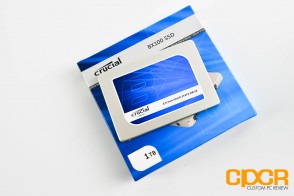 At CES earlier this year, Crucial introduced two new entry level/mainstream SSDs which were expected to hit the market sometime in Q1.
At CES earlier this year, Crucial introduced two new entry level/mainstream SSDs which were expected to hit the market sometime in Q1.
The first was the Crucial MX200, which is an update to the Crucial MX100 introduced in the middle of last year. Although the Crucial MX200 isn’t much different in terms of internal hardware, it does get Dynamic Write Acceleration (DWA) for the first time, which is a feature we first covered in our review of the Micron M600.
The second product Crucial introduced is the Crucial BX100, which would be an all new entry level SSD for Crucial which is designed to be even more cost effective than the already cost effective Crucial MX series SSDs. Although The BX series is slightly slower and loses a couple features such as hardware encryption and power loss protection, it still comes with Crucial’s top-notch reliability and, best of all, higher capacity drives will come in with a price per gigabyte ratio of just under $0.40/GB.
Crucial BX100 Specifications
| Manufacturer | Crucial | Crucial | Crucial | Crucial |
|---|---|---|---|---|
| Model | BX100 | BX100 | BX100 | BX100 |
| Model Number | CT120BX100SSD1 | CT250BX100SSD1 | CT500BX100SSD1 | CT1000BX100SSD1 |
| Form Factor | 2.5″ 7mm | 2.5″ 7mm | 2.5″ 7mm | 2.5″ 7mm |
| Capacity | 120GB | 250GB | 500GB | 1TB |
| Controller | SMI 2246EN | SMI 2246EN | SMI 2246EN | SMI 2246EN |
| NAND | IMFT 16nm Synchronous MLC | IMFT 16nm Synchronous MLC | IMFT 16nm Synchronous MLC | IMFT 16nm Synchronous MLC |
| DRAM Cache | 128MB DDR3 | 256MB DDR3 | 512MB DDR3 | 1024MB DDR3 |
| Sequential Reads | 535 MB/s | 535 MB/s | 535 MB/s | 535 MB/s |
| Sequential Writes | 185 MB/s | 370 MB/s | 450 MB/s | 450 MB/s |
| 4K Random Read | 87,000 | 87,000 | 90,000 | 90,000 |
| 4K Random Write | 43,000 | 70,000 | 70,000 | 70,000 |
| Interface | SATA 6Gb/s | SATA 6Gb/s | SATA 6Gb/s | SATA 6Gb/s |
| Warranty | 3 Years, 72 TBW | 3 Years, 72 TBW | 3 Years, 72 TBW | 3 Years, 72 TBW |
The Crucial BX100 is Crucial’s first SSD in the BX series lineup and will be available in four capacities – 120GB, 250GB, 500GB, and 1TB. Sequential read performance will be consistent across the board maxing out at 535 MB/s, but sequential reads will be capped at 185 MB/s for the 120GB model, 370 MB/s for the 250GB model, and 450 MB/s for the 500GB and 1TB model.
Internally, the Crucial BX100 will be the first Crucial drive to use the Silicon Motion’s SM2246EN controller. It’s actually very interesting to see Crucial use Silicon Motion’s controller offerings as most of Crucial’s offerings have all been based on Marvell controllers. NAND onboard is still Micron’s 16nm Synchronous MLC, which is the same stuff we’ve seen since the Crucial MX100 was launched last year. Not much change there and not much change is expected until Micron moves to 3D NAND sometime in the next year or so.
Since this is the first time we’re seeing a Crucial SSD with a Silicon Motion controller onboard, we’re very excited to see how this one stacks up. Let’s go ahead and take a closer look!
[section label=2. A Closer Look]
A Closer Look at the Crucial BX100 1TB
Here’s a look at the packaging for the Crucial BX100 1TB.
Included in the packaging we get a 2mm spacer and the Crucial BX100 itself.
Here’s a closer look at the Crucial BX100 1TB SSD. It’s pretty similar to designs from the rest of the Crucial SSD lineup. The screwless metal casing is slightly different from what we’ve seen from Crucial in the past, but it’s not a huge difference.
Cracking open the casing, we can see that the Crucial BX100 1TB is packed to the brim with components. Onboard we get a controller, two memory chips, and sixteen NAND chips.
An interesting first for Crucial is their choice in using the Silicon Motion SM2246EN controller for the BX100 rather than the Marvell controllers they’ve almost exclusively over the past few years. The Silicon Motion SM2246EN is a 4 channel, entry level controller which is being used on a number of newer entry level SSDs such as the Angelbird SSD wrk, Corsair Force Series LX, and Transcend SSD370. Silicon Motion has made a pretty big name for themselves in the low cost SSD controller market and Crucial’s endorsement for the controller is a really good sign for Silicon Motion.
NAND onboard the Crucial BX100 is IMFT 128Gb 16nm Synchronous MLC. A total of 16x 64GB NAND packages onboard makes up a total of 1024GiB. Crucial has also included two 512MB DDR3L DRAM chips for a total of 1024MB DRAM buffer.
[section label=3. Crucial Storage Executive]
Crucial Storage Executive
Along with the launch of the Crucial MX200 and BX100, Crucial also launched their first ever software suite which they refer to as Crucial Storage Executive. Crucial Storage Executive will offer similar features to SSD software suites we’ve seen from various other top tier SSD vendors such as Samsung, Intel, and SanDisk.
The main screen for Crucial’s Storage Executive software is the drive details which pulls a variety of information about the drive such as how much disk space is used, the total capacity of the drive, the firmware, the serial number, etc.
There’s also S.M.A.R.T. data which pulls a ton of more in-depth information on the drive for debugging purposes.
Although Crucial doesn’t really release firmware updates very often, Crucial Storage Executive has a firmware update feature which allows users to easily update the firmware on their drive via a GUI.
There’s an option here to sanitize the drive, which is simply a secure erase.
The final tab will allow for a PSID revert which will help remove the TCG Opal lock for drives that support TCG Opal. Since TCG Opal isn’t a feature of the Crucial BX100, this option isn’t available here.
[section label=4. Testing Setup and Drive Info]
Testing Setup
| System | CyberPowerPC Gamer Xtreme 4200 |
|---|---|
| CPU | Intel Core i7-4770K |
| Motherboard | ASUS Z87-A |
| Memory | Kingston HyperX Genesis 16GB DDR3 2133MHz |
| Graphics | Intel HD4600 Graphics |
| Storage | OCZ Vertex 4 256GB |
| Power Supply | Corsair HX650 |
| Case | HSPC High Speed Tech Station |
| Optical Drive | ASUS OEM DVD Drive |
| Operating System | Windows 8 64 bit & CentOS 6.4 |
Special thanks to CyberPowerPC, Kingston, OCZ Storage Solutions and HSPC for sponsoring our test bench!
Crystal Disk Info
Crucial BX100 1TB
Today we’ll be reviewing the Crucial BX100 with the MU01 firmware. It appears that Crucial has customized the firmware onboard these drives as we’ve seen previous Silicon Motion SM2246EN powered SSDs such as the Angelbird SSD wrk for example using the N0530A firmware.
[section label=5. ATTO Disk Benchmark / AS SSD / Crystal Disk Mark]
Crucial BX100 1TB Performance
ATTO Disk Benchmark v2.46
ATTO Disk Benchmark is one of the industry’s oldest and most popular benchmarks for testing disk read/write speeds. This benchmarks allows read and write testing using predefined block sizes and gives us a good idea of read/write speeds with different sized files. Most SSD manufacturers prefer using this benchmark when advertising SSDs as it tests using compressible data, which tends to yield best performance.
Performance Analysis
Coming in just slightly faster than advertised, the Crucial BX100 1TB was able to reach sequential read/write speeds of up to 558/460 MB/s. Off to a good start I must say.
AS SSD Benchmark
AS SSD is a very commonly used benchmark used to measure SSD performance in sequential, 4K, 4K QD64 and latency. Tests are run using 100% incompressible data. AS SSD also outputs a final score at the conclusion of the test based off the overall performance of the drive.
Additionally, we also run AS SSD’s included compression benchmark which tests the drive using data of varying compressibility. Some SSDs such as SandForce based SSDs tend to perform significantly better when the data is compressible.
Performance Analysis
AS SSD performance is decent as well especially considering this considered an entry level offering with an entry level pricetag to match. Sequential read/write performance here came in at 522/435 MB/s.
Crystal Disk Mark 3.0.1 x64
Crystal Disk Mark is another popular benchmark which allows us to measure both sequential read/write speeds as well as random read/write speeds. With this benchmark, tests can be run using both random fill (incompressible data) and 0 fill (compressible data). Realistically in typical computer usage scenarios, data being transferred will consist of a mixture of both incompressible and compressible data.
Performance Analysis
Crystal Disk Mark reports similar results to what we’ve already seen. Although not the fastest SSD we’ve seen, it’s not all that slow either.
[section label=6. PC Mark 7 / PC Mark 8]
Crucial BX100 1TB Performance
PC Mark 7 Storage Benchmark
The PC Mark 7 storage benchmark is a trace based benchmark that evaluates the SSD under many different real world environments such as gaming, multimedia editing, etc. PC Mark 7 uses a relatively light workload, which represents a typical mainstream client storage sub-system workload.
Performance Analysis
Since it’s an entry level drive, the Crucial BX100 came in somewhere around the middle of the pack. It did perform slightly better than the Angelbird SSD wrk which is equipped with the same Silicon Motion SM2246EN controller, but uses Silicon Motion’s reference firmware.
PC Mark 8 Expanded Storage Benchmark
With the introduction of PC Mark 8 2.0.228, Futuremark added the option for an Expanded Storage Benchmark which is literally designed to bring any storage system its absolute limits. The new PC Mark 8 Expanded Storage Benchmark takes around 24 hours to run and for our purposes, we’ll be using the consistency test which measures performance consistency, degradation tendency, and recovery speed of a storage system.
Consistency Test
Full details on the consistency test can be found in the PC Mark 8 Technical Guide here. For the more simplified version, the test is basically a near 24 hour, five phase benchmark – three of which we’ll be reporting on in our results below.
- Phase 1 is a precondition phase designed to “dirty” the drive with random data. The entire drive is filled twice to the capacity of the drive.
- Phase 2 is a degrade phase where the drive is hammered with tons of random data followed by a performance test run. This is done 8 times.
- Phase 3 is the steady state phase where the drive is once again hammered with tons of random data followed by a performance test run. This is done 5 times.
- Phase 4 is the recovery phase where the drive is given 5 minutes to rest followed by a performance test run. This is done 5 times.
- Phase 5 is the clean up phase where the drive is simply secure erased.
Performance Analysis
PC Mark 8 Expanded Storage Benchmark performance for the Crucial BX100 is relatively low, but it’s similar to what we saw in the entry level Crucial MX100 which uses the same NAND, but a Marvell 88SS9189 controller instead. While the Crucial BX100 compares well against the Crucial MX100 with heavier loads, the Crucial MX100’s Marvell controller does a much better job with lighter recovery workloads.
[section label=7. FIO – FOB]
Crucial BX100 1TB Performance
FIO (Flexible I/O Tester)
FIO, which stands for Flexible I/O Tester, is basically what its name says – a flexible I/O tester / I/O workload generator. Whereas all the benchmarking tools we’ve used previously are fantastic, easy to use benchmarking tools that provide a good snapshot of SSD performance, they do lack a lot of versatility, especially for more complex and in-depth operations such as custom queue depths, block sizes, test run times, etc. While the testing that follows may not pertain to typical consumer usage, they do help give us a much more in-depth look at each individual product’s strengths and weaknesses when they’re pushed to the limits.
FIO – FOB (Fresh Out of the Box) Testing
When SSDs are brand new and Fresh Out of the Box, they’re generally able to perform at or outperform their advertised speeds, but unlike traditional hard drives, performance on SSDs begin to degrade over time as they become more and more used. This is because while SSDs are new, all bits on the SSD are empty, so they can instantly be programmed with data. However, once data gets programmed in, even if it’s deleted in the filesystem the actual data will still stay programmed on the NAND itself unless some sort of garbage collection routine comes in to wipe the data. Unfortunately, in order to write new data onto “dirty” NAND, the NAND first needs to go through an erase cycle to erase the old data before a program cycle can happen to program new data, which as you may imagine takes more time than just a simple program cycle. As this only happens when writing new data onto the SSD, you’ll generally see less performance degradation on reads and more performance degradation on writes.
For our FOB testing, we run a secure erase on the SSD then run each test sans any preconditioning. This will provide us with the highest level of performance the SSD is capable of and is likely never to be seen ever again once the SSD goes into a used state.
Our testing will include 4K read testing, 4K write testing, and 4K 70/30 read/write mix testing at queue depths of 1,2,4,8,16,32,64,128,256. The reason we’ve also included 4K 70/30 read/write mix testing is simply because most real world workloads will always fall somewhere between 0% write and 100% write rather than one or the other. Since client usage is much more read heavy, we’ll be using the 70/30 read/write mix.
For general client usage, performance will fall somewhere between queue depths of 1-4 whereas servers and other enterprise applications will easily see queue depths of 32 or greater.
Performance Analysis
Fresh out of the box, performance on the Crucial BX100 was decent. 4K random read performance exceeded the rated 90,000 IOPS by ~7,000 IOPS which is good. Random write performance was decent as well and matched its rated specifications of ~70,000 IOPS. Mixed workload performance is fairly competitive too with the drive pulling ~77,000 IOPS.
[section label=”8. FIO – Steady State”]
Crucial BX100 1TB Performance
FIO – Steady State Testing
After prolonged use of an SSD, it will reach “steady state” where performance levels off to a minimum level. The FOB state is the “best case scenario” for SSD performance while “steady state” is going to be your worst. Here, we ran the exact same set of benchmarks we just completed in the FOB state; except this time around, we’ll be preconditioning the drive by filling 100% of the drive’s LBAs with two sequential passes of 128k data followed by hammering the drive for six hours with 4K random data prior to actual testing.
Performance Analysis
Steady state performance for the Crucial BX100 on the other hand is fairly low, which is common of an entry level drive. Random read performance took a hit, dropping to ~70,000 IOPS, but random write performance took the biggest hit dropping down to ~4,000 IOPS. The drive’s synchronous NAND on-board does prevent it from being the slowest drive of the pack – that award belongs to the Patriot Ignite which uses asynchronous NAND.
[section label=”9. FIO – 4K Random Write Consistency”]
Crucial BX100 1TB Performance
FIO 4K Random Write Consistency Testing
Another one of the benefits of testing with FIO is the flexibility of running consistency tests, which is one of the most important metrics when considering SSDs going forward. Looking at the results of our benchmarks such as ATTO Disk Benchmark and Crystal Disk Benchmark, we can see that practically every top tier SSD is capable of saturating SATA 6Gb/s in the FOB state. However, what really differentiates these SSDs is their ability to hold a certain level of performance even after extended periods of use.
For our consistency testing, we used a fairly standard method, which includes both filling up 75% of capacity as well as 100% capacity twice with sequential 128k data followed by the actual test itself, which is simply running 4K random writes at a queue depth of 32. By recording the IOPS every second for 2,000 seconds, we’re able to get a good look at what kind of performance can be expected when the drive is relatively new, when it’s heading towards steady state, and when it’s actually in steady state.
[tabgroup]
[/tabgroup]Performance Analysis
The Crucial BX100’s random writes aren’t very consistent, which isn’t too surprising since it’s a entry level drive. Since we’ve seen the Silicon Motion SM2246EN used on the Angelbird SSD wrk previously, we expected performance to be fairly similar. At 100% fill, the Crucial BX100 quickly dropped to its steady state performance of ~2,000 IOPS, then performance varied between 2,000 IOPS and bursts up as high as 50,000 IOPS. At 75% fill, the drive performs similarly except performance variation between maximum and minimum performance is much more frequent.
[section label=”10. FIO – 4K Random Write Latency”]
Crucial BX100 1TB Performance
FIO 4K Random Write Latency Testing
Another metric that’s becoming increasingly important in SSDs is its ability to keep latency low despite being subjected to a heavy workload. Even if a SSD were capable of ultra high and ultra consistent IOPS performance, if latency were high, users would still feel that the drive is slow. Ideally, SATA SSDs should always be capable of latencies under 50ms, even during heavy workloads.
For latency testing, we’ll be using the exact same testing parameters as IOPS consistency testing, except instead of recording IOPS every second, we’ll be recording latency.
[tabgroup]
[/tabgroup]Performance Analysis
As we’ve seen in the last test, drive consistency with the Crucial BX100 wasn’t very impressive and its drive latency is similarly unimpressive as well. Latency is among the worst I’ve seen even for a newer SSD. It appears that Crucial was aiming to keep latency under ~80ms, but there are times when latency is as high as ~142ms! While high latency under punishing workloads shouldn’t be much of a problem for most client applications, it does beg the question as to why Crucial opted to use their own firmware when the reference firmware for the Silicon Motion SM2246EN is much better at keeping latencies at a more acceptable level.
[section label=”11. FIO – 128K Random Write”]
Patriot Ignite 480GB Performance
FIO 128K Random Write Consistency Testing
In addition to testing 4K random write consistency, we’ll also test for 128K random write consistency to see how well a SSD is able to hold itself to a level of performance when getting hammered with larger file transfers.
Testing methodology is very similar to our testing for 4K random write consistency. We use a fairly standard method, which includes both filling up 75% of capacity as well as 100% capacity twice with sequential 128k data followed by the actual test itself, which is running 128K random writes at a queue depth of 32. By recording the IOPS every second for 2,000 seconds, we’re able to get a good look at what kind of performance can be expected when the drive is relatively new, when it’s heading towards steady state, and when it’s actually in steady state.
[tabgroup]
[/tabgroup]Performance Analysis
Similar to 4K random write consistency, 128K random write consistency wasn’t managed very well either. At both 100% and 75% fill, performance ranged from 435 MB/s to 7 MB/s once steady state is reached.
[section label=12. Power Consumption]
Crucial BX100 1TB Power Consumption
Previously, our power consumption analysis only tested for idle and maximum load power consumption, but we felt that this was a bad way to accurately measure power consumption. The reason for this is because SSDs tend to be bursty while in operation and will spike in power usage, but only for very short periods of time. As such, many of our SSDs appeared to have even higher power consumption than traditional hard drives, which is untrue.
In order to better represent a drive’s power consumption, our solution was to run a test closer to the real-world and record a trace of the exact power consumption during testing. Since PC Mark 7 has been recognized by the industry as a fantastic real-world benchmark, we’ll be recording the drive’s power consumption while running the benchmark.
All tests below are measured by our B&K Precision 5491B Bench Multimeter tapped directly into the 5v line running from the power supply to the drive. All testing here is conducted with “HIPM (Host Initiated Power Management)/DIPM (Device Initiated Power Management)” enabled and “AHCI Link Power Management – Adaptive” set to 0 milliseconds for maximum power efficiency.
[tabgroup]
[/tabgroup]Performance Analysis
Power consumption on the Crucial BX100 was very similar to most of the newer Crucial SSDs, so it definitely appears that Crucial has made some tweaks to the firmware for the Silicon Motion controller. Unfortunately, those tweaks caused slightly higher power consumption than we’ve seen in the stock firmware, which is used by the Angelbird SSD wrk. It’s not that bad though. Idle power consumption came in at ~0.06w and power consumption in our PC Mark 7 testing averaged ~0.40w. The Crucial BX100 is definitely one of the more power efficient Crucial drives on the market and one of the most power efficient drives on the market in general as well.
[section label=13. Conclusion]
Crucial BX100 1TB Conclusions
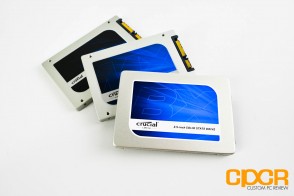 Since I’ve already had the opportunity to test Silicon Motion SM2246EN based SSDs in the past, I had some idea of the type of performance to expect. While Crucial does make some minor tweaks to the firmware, performance isn’t much different from what we’ve seen in other drives with the Silicon Motion SM2246EN controller. As expected, the Crucial BX100 is optimized for lighter, read intensive workloads which is well suited for client use.
Since I’ve already had the opportunity to test Silicon Motion SM2246EN based SSDs in the past, I had some idea of the type of performance to expect. While Crucial does make some minor tweaks to the firmware, performance isn’t much different from what we’ve seen in other drives with the Silicon Motion SM2246EN controller. As expected, the Crucial BX100 is optimized for lighter, read intensive workloads which is well suited for client use.
As for power consumption, the Crucial BX100 is one of the more power efficient drives out there. The Silicon Motion SM2246EN controller is one of the more efficient controllers we’ve had the opportunity to test and although Crucial’s firmware does require a bit more power consumption, it’s still very competitive and should be very well suited for mobile applications.
| Manufacturer | Crucial | Crucial | Crucial | Crucial |
|---|---|---|---|---|
| Model | BX100 | BX100 | BX100 | BX100 |
| SKU | CT120BX100SSD1 | CT250BX100SSD1 | CT500BX100SSD1 | CT1000BX100SSD1 |
| Capacity | 120 GB | 250 GB | 500 GB | 1 TB |
| Street Price | $68.15 | $99.00 | $184.00 | $374.99 |
| Price/GB | ~$0.57 | ~$0.40 | ~$0.37 | ~$0.37 |
| Check Price | Click Here | Click Here | Click Here | Click Here |
The Crucial BX100 1TB can currently be found on Amazon for ~$374.99, which comes out to ~$0.37/GB. This makes it incredibly competitive even among entry level SSDs. Warranty on the drive is a standard 3 years, 72TB TBW (Total Bytes Written), which is fairly common for Crucial drives. While I’d like to see a longer warranty, given Crucial’s top notch reliability record and the fact that Crucial’s parent company produces the NAND in-house, a 3 year warranty this shouldn’t be a problem.
Overall I think the Crucial BX100 is just another excellent offering from Crucial that’s really a no-brainer for those with a tight budget looking for a solid entry level SSD. Those looking into purchasing a SSD for a work computer, a laptop, or a web browsing system would find the Crucial BX100 a fantastic choice. Recommended!
Sample provided by: Crucial
Availability: Amazon

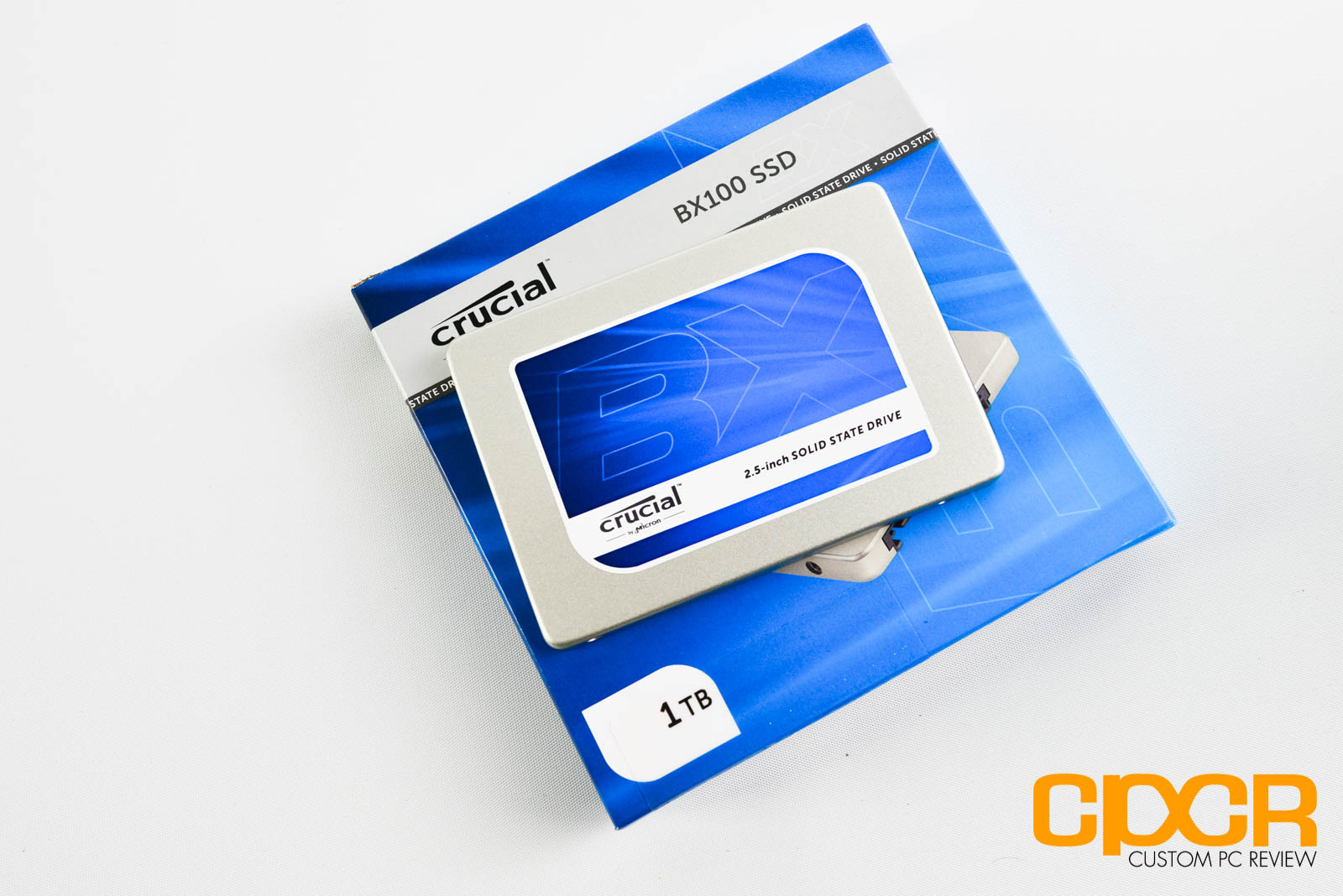
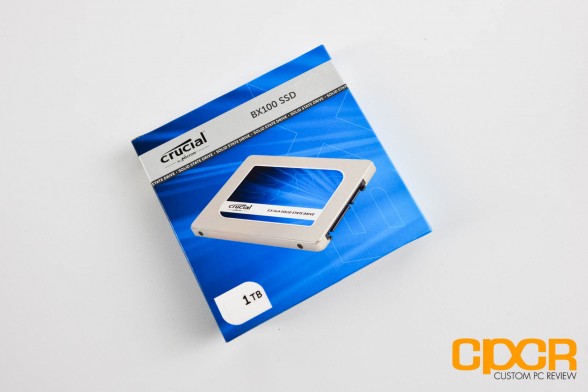
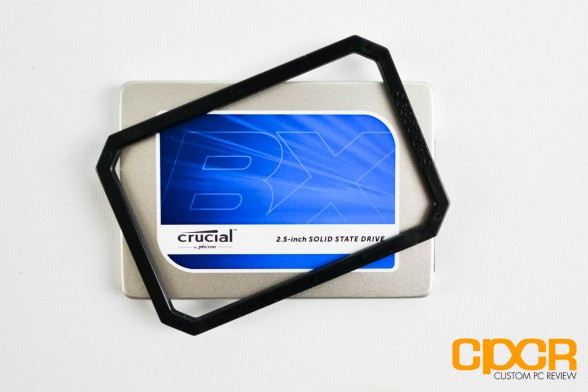
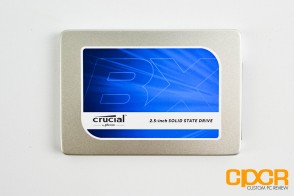
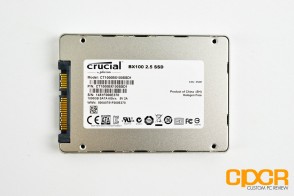
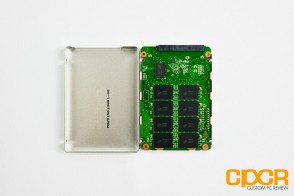
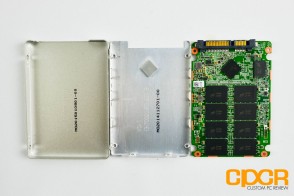
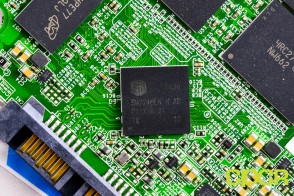
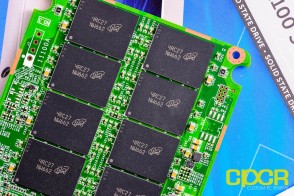
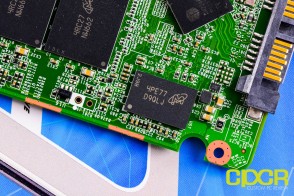
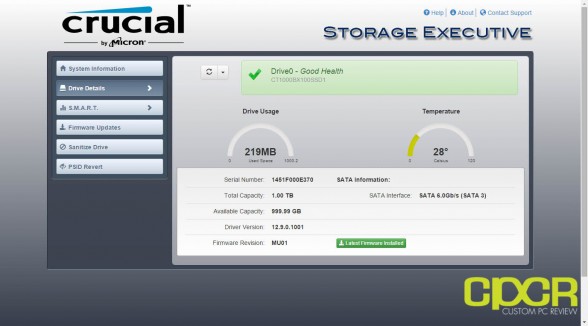
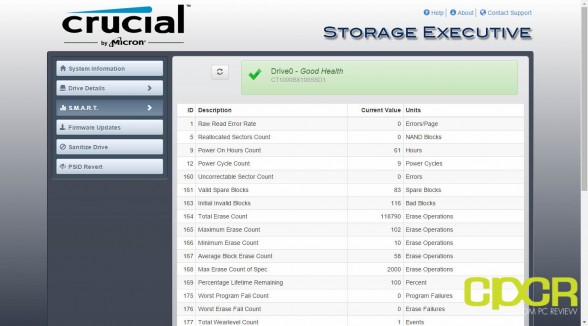
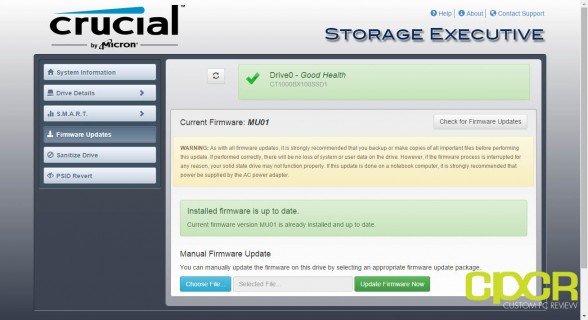
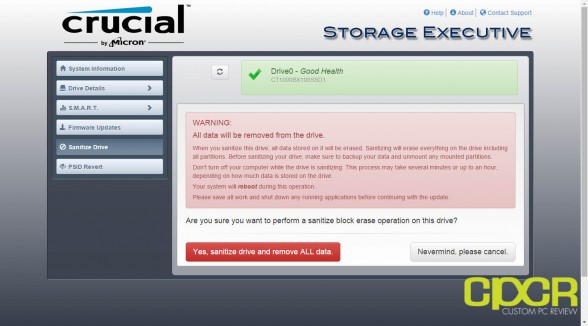
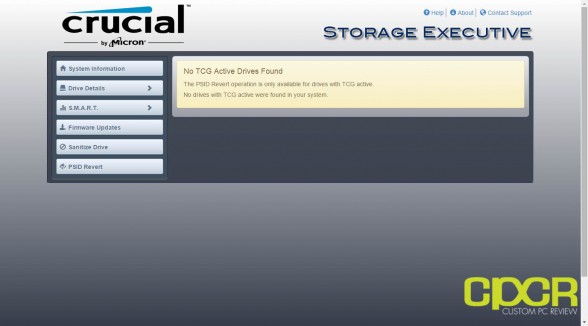
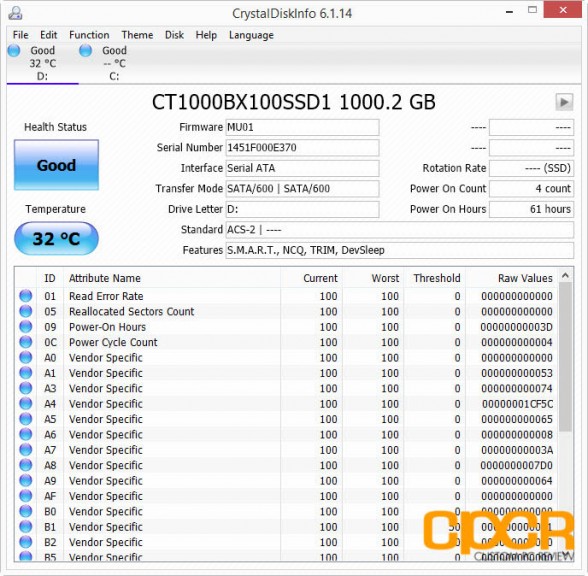
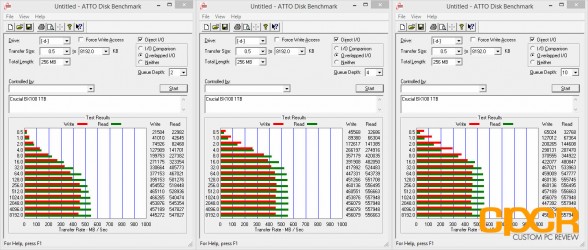
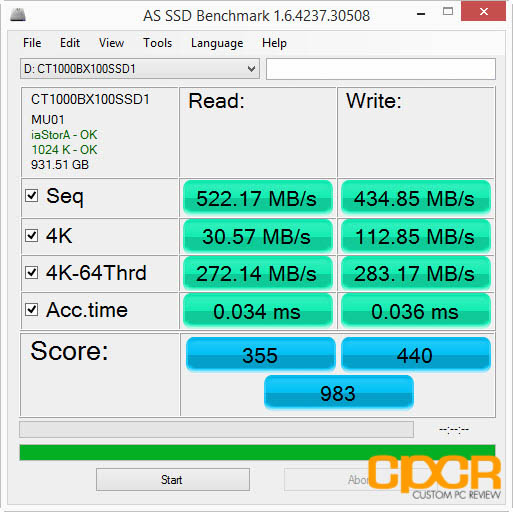
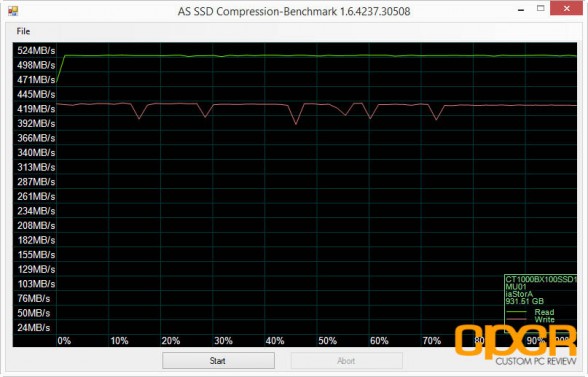
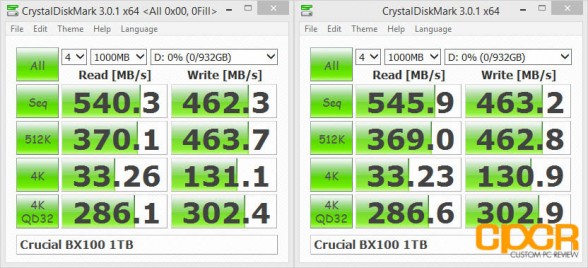
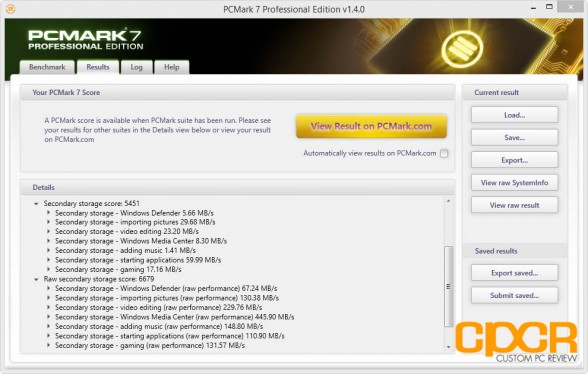
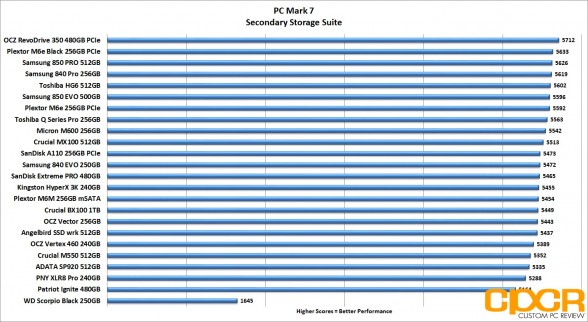
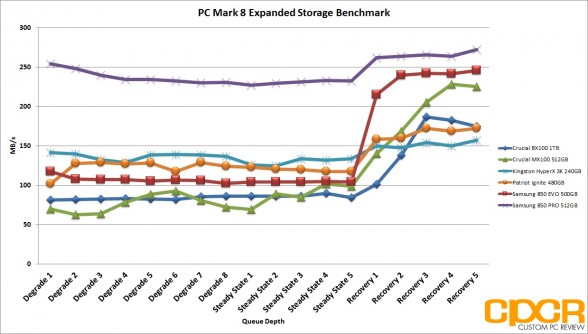
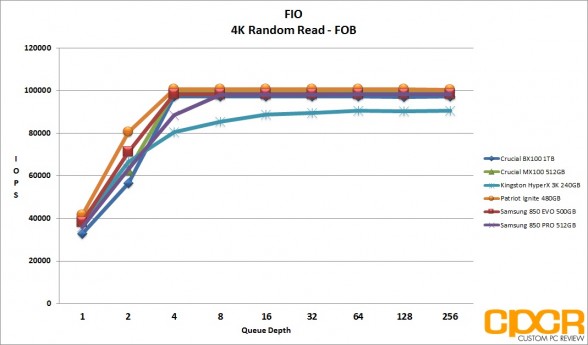
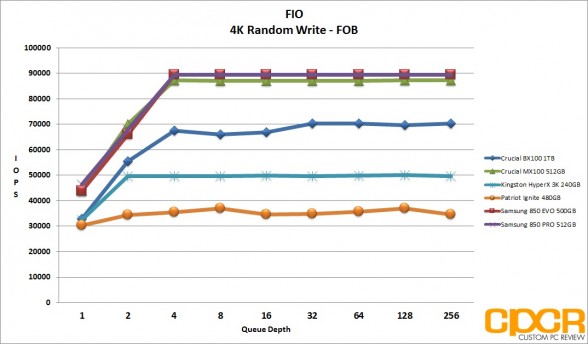
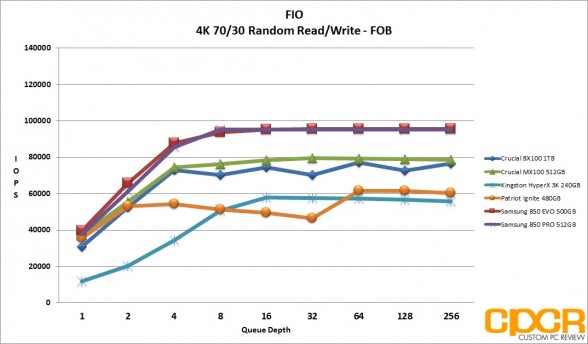
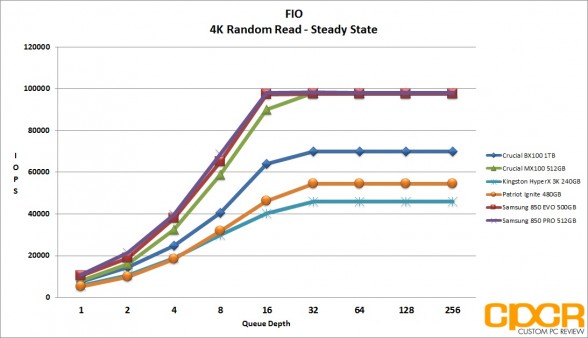
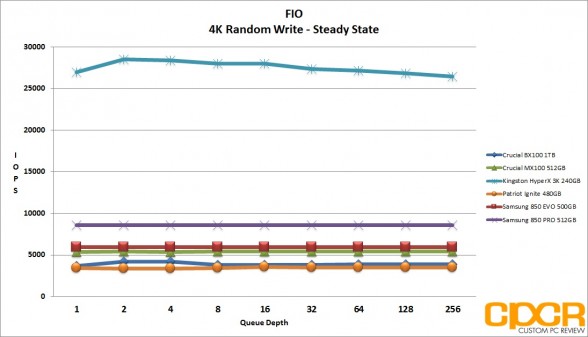
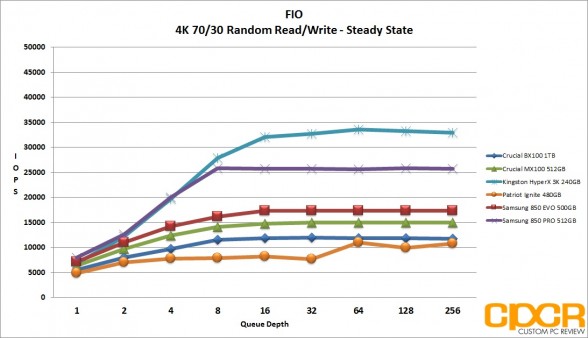
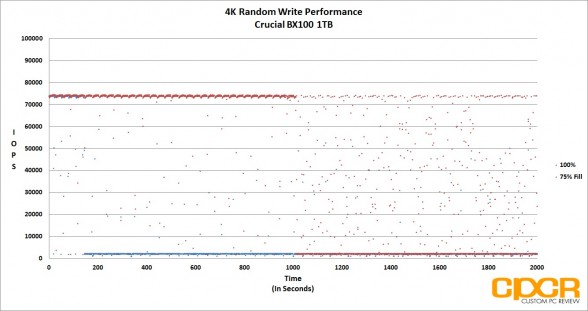
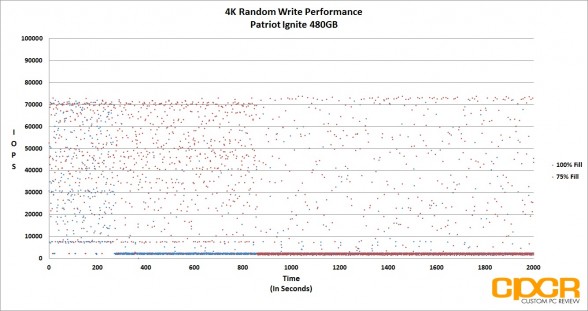
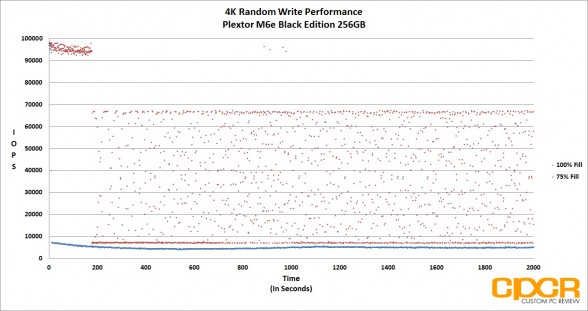
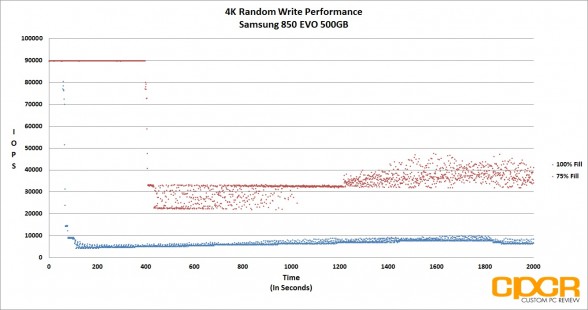
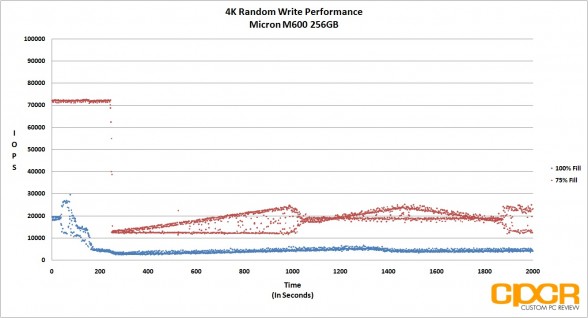
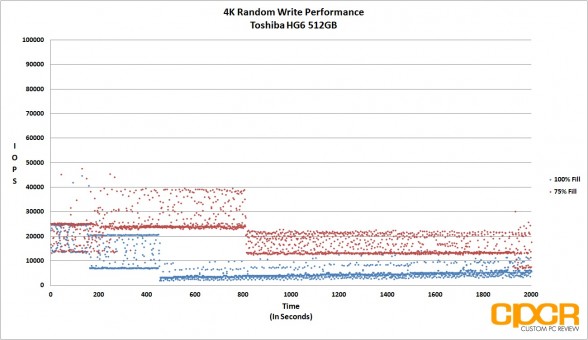
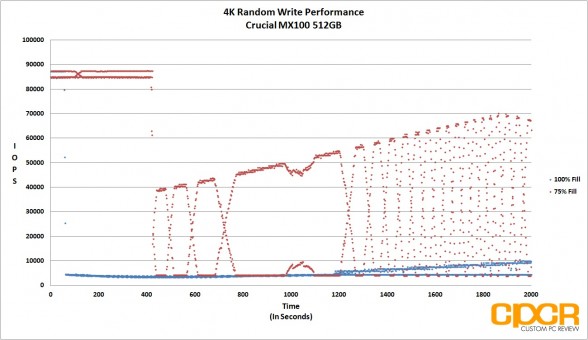
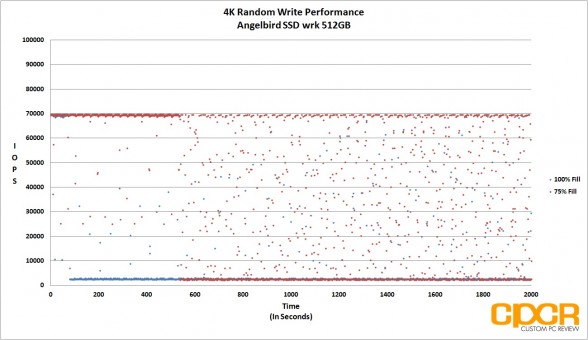
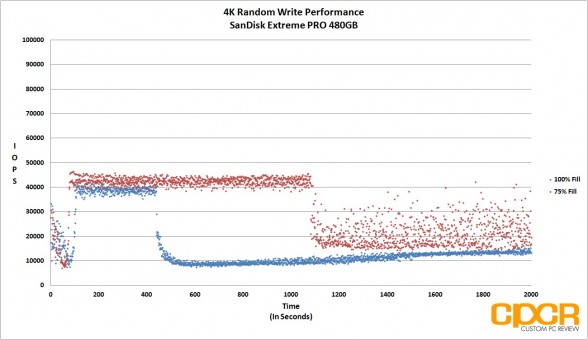
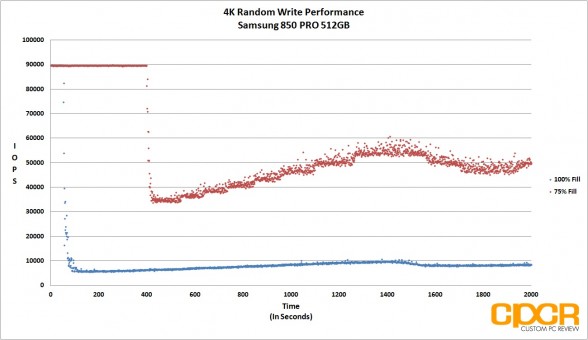
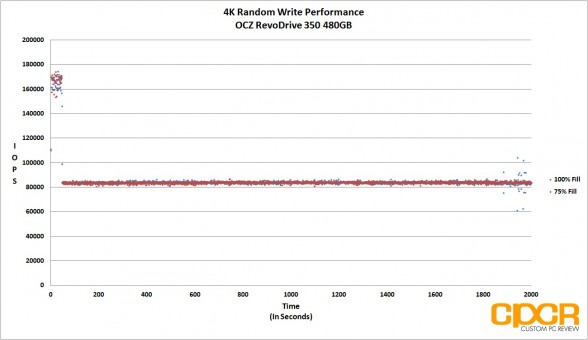
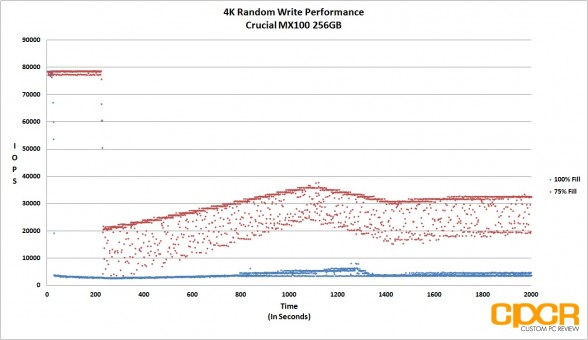
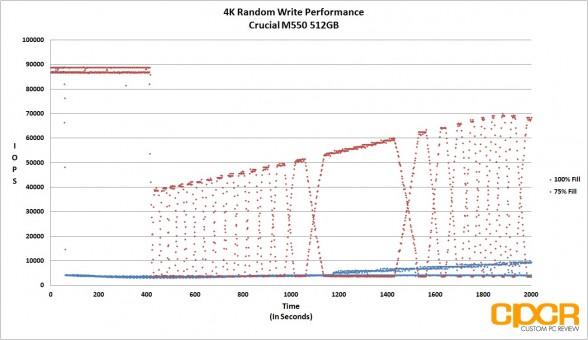
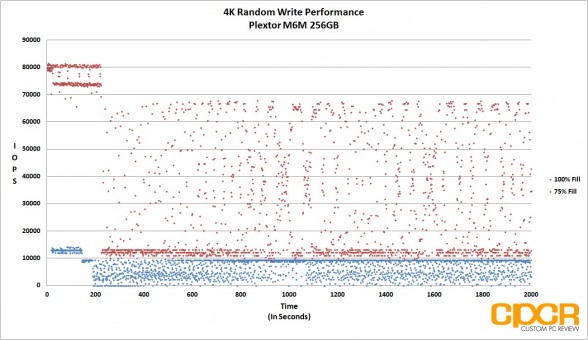
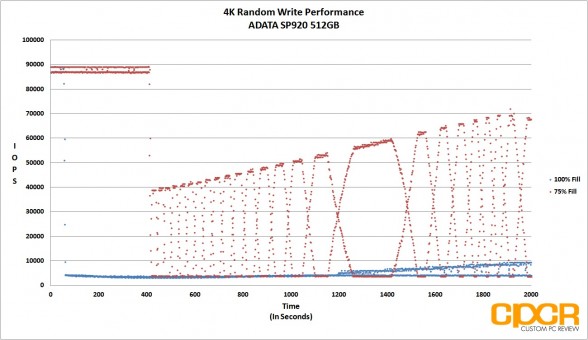
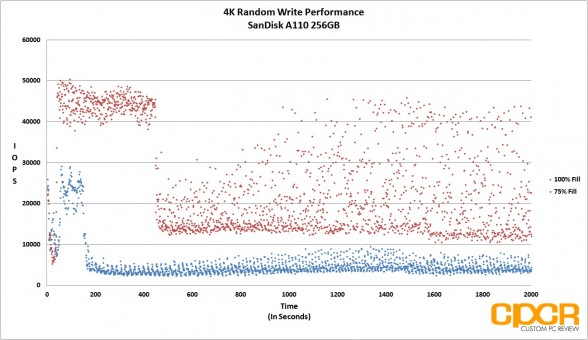
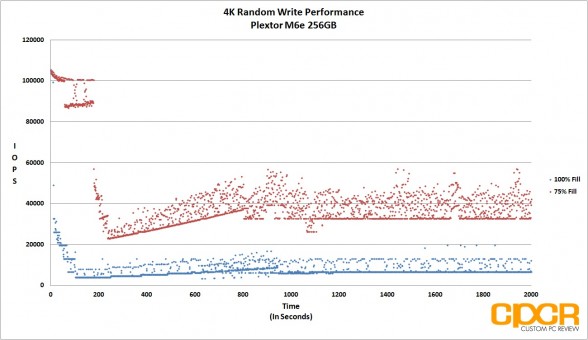
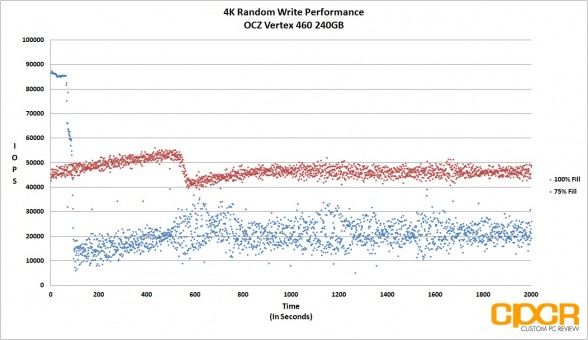
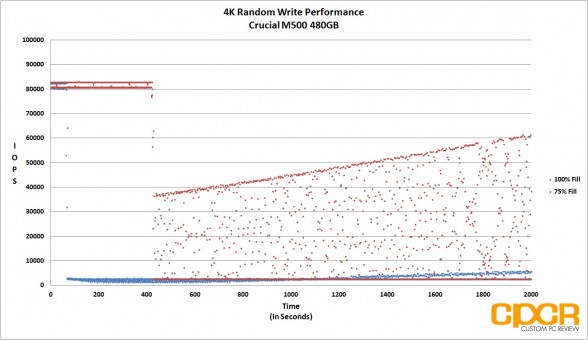
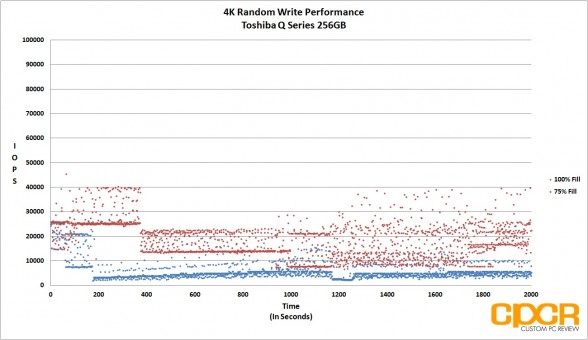
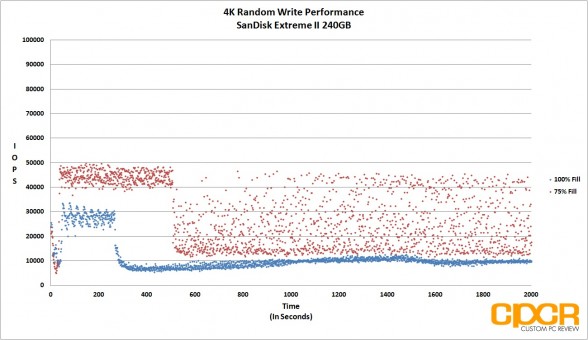
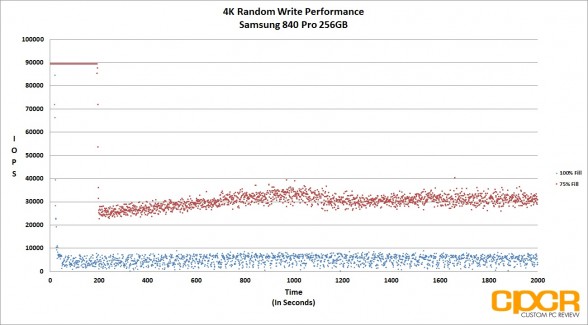
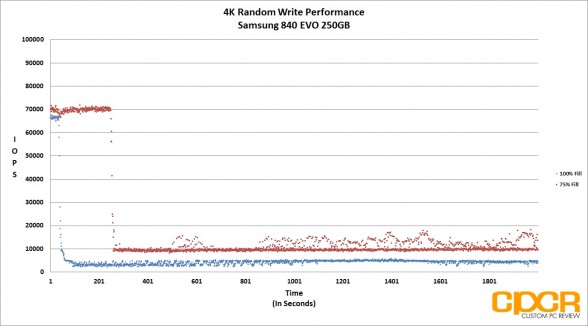
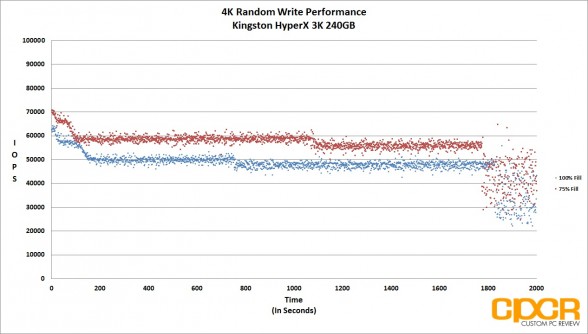
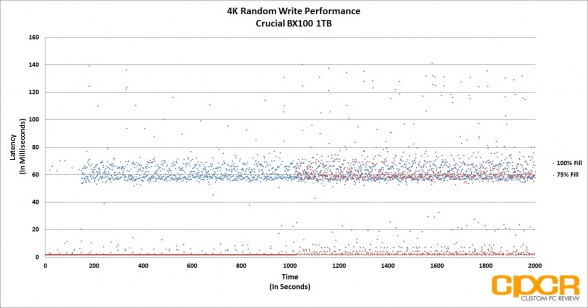
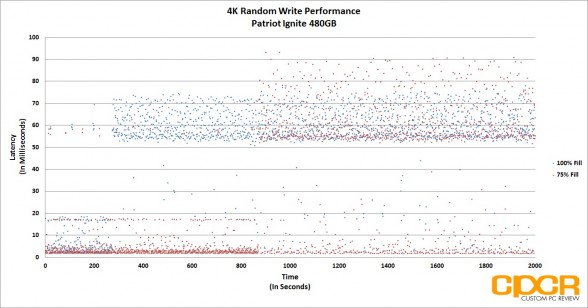
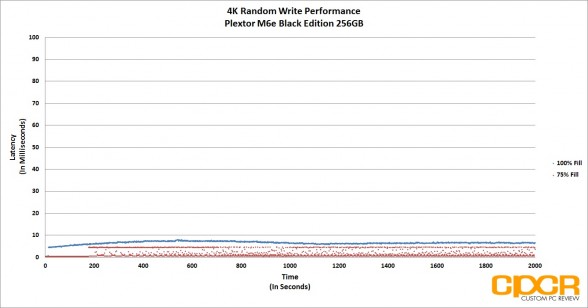
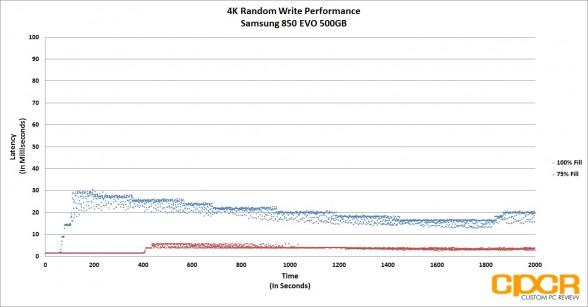
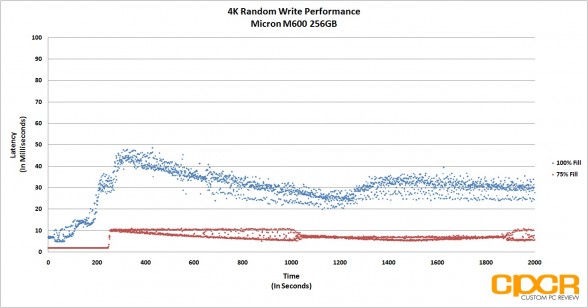
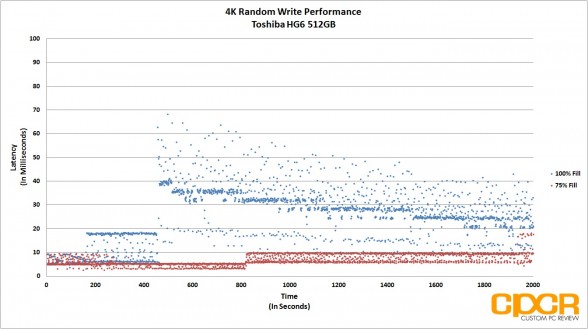
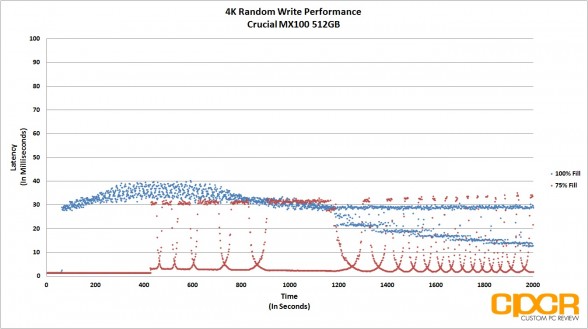
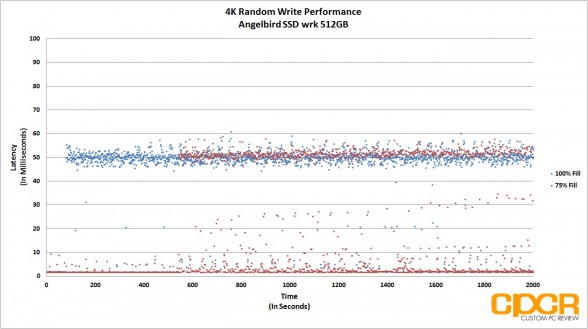
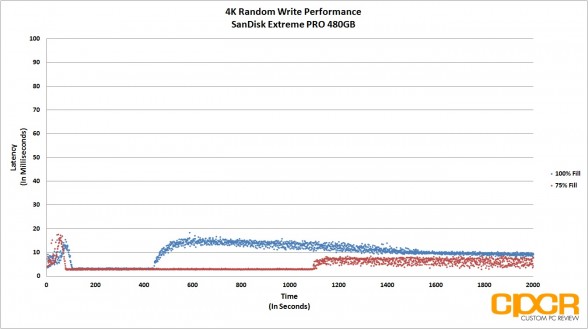
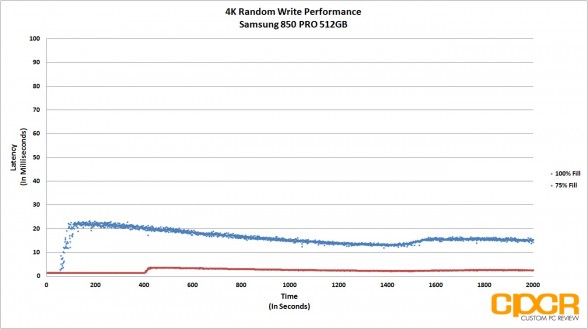
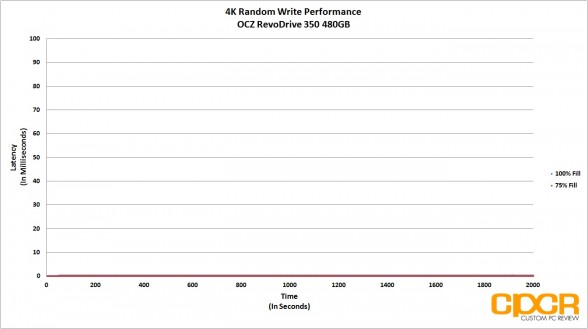
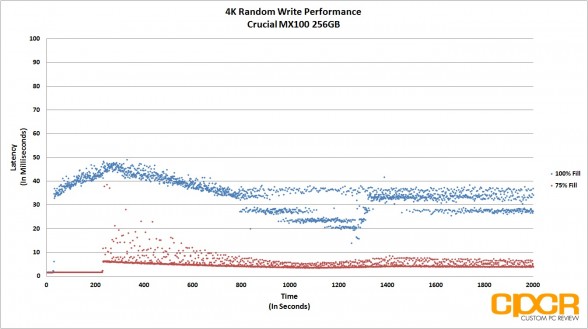
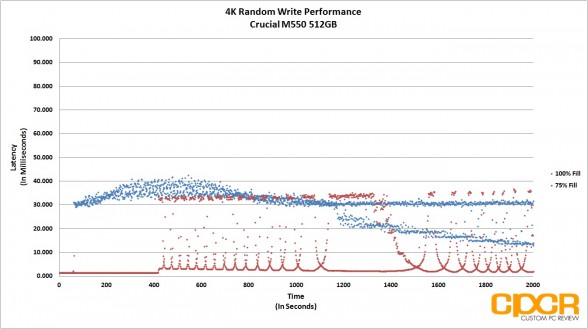
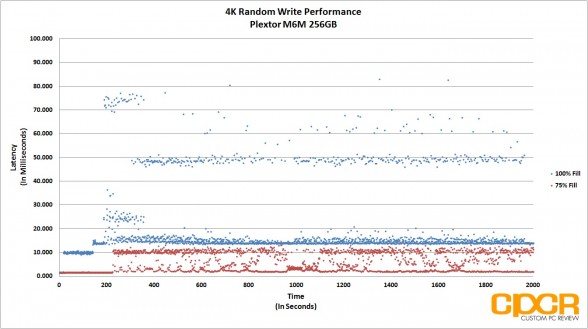
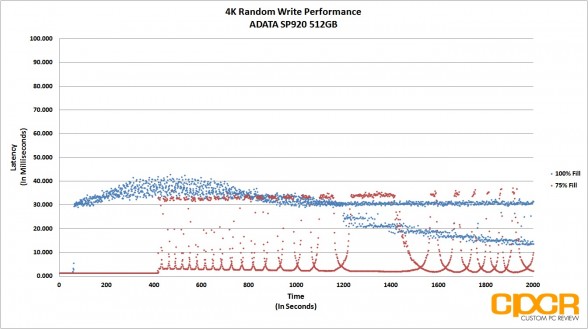
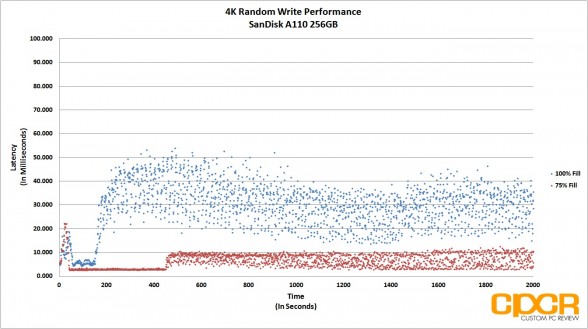
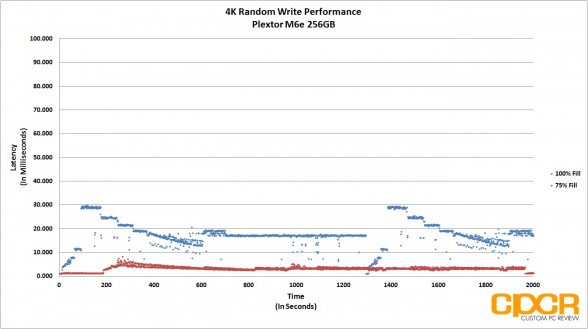
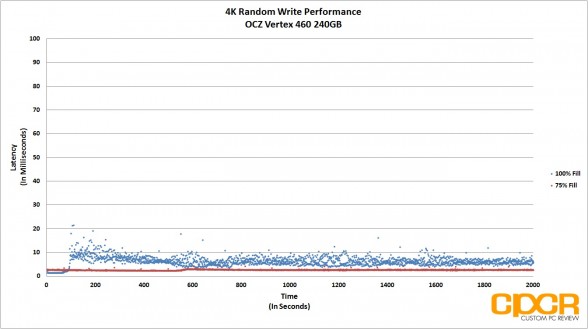
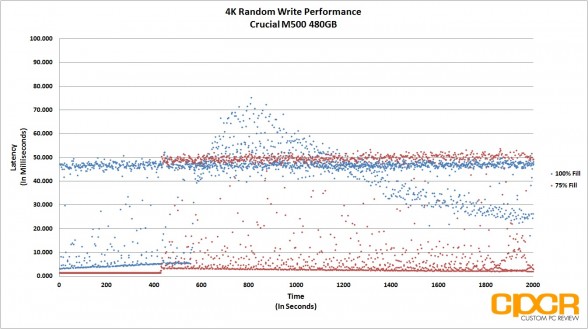
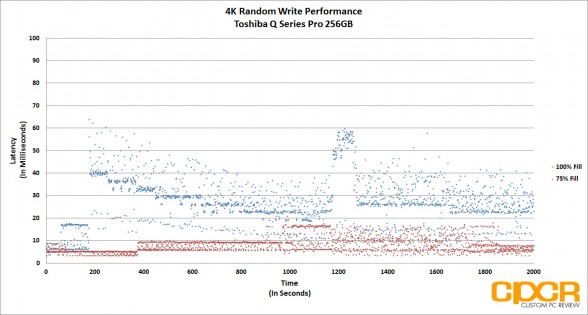
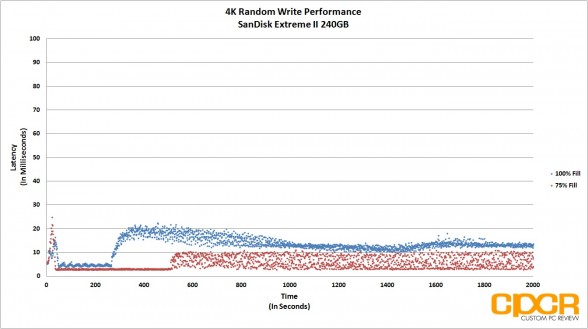
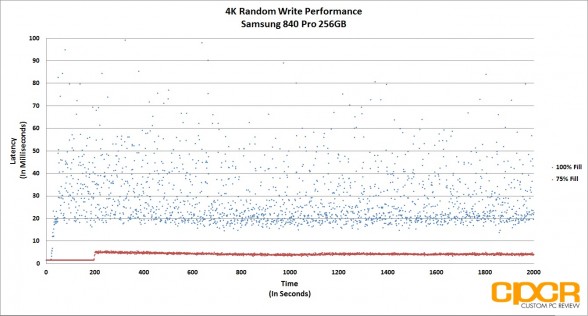
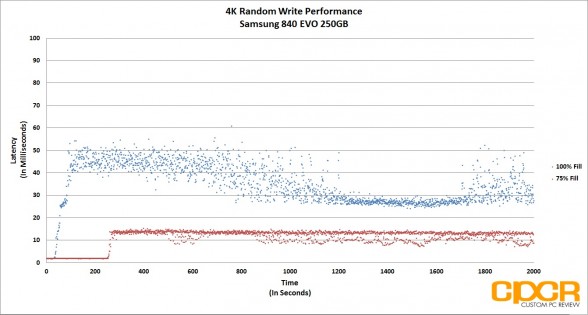
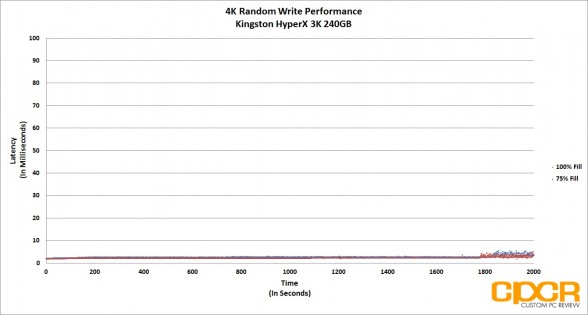
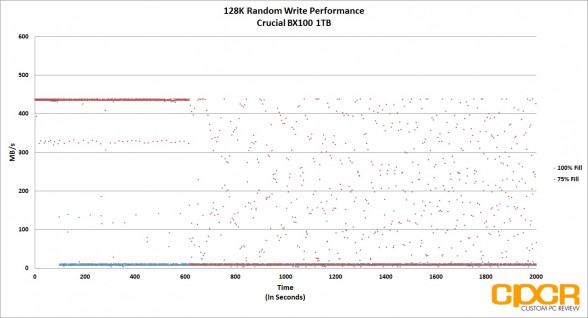
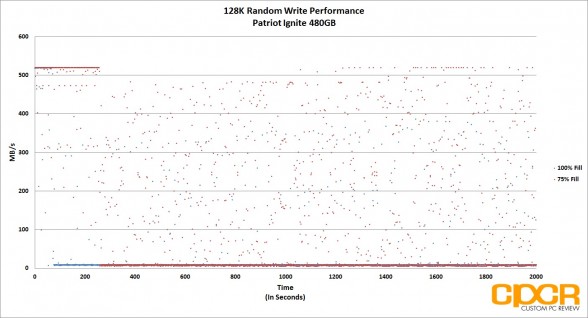
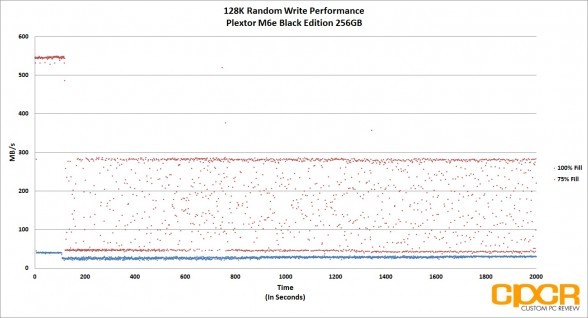
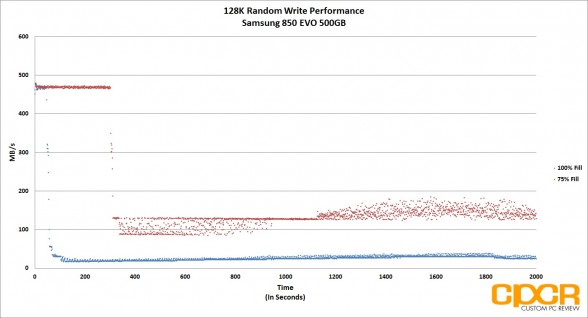
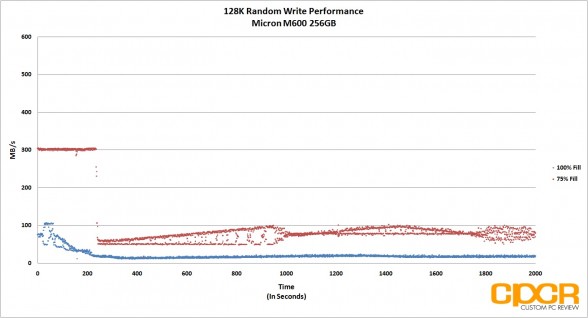
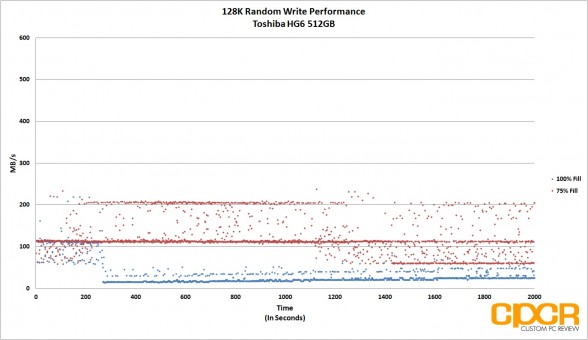
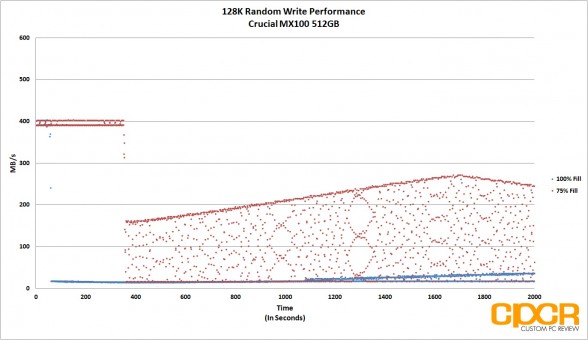
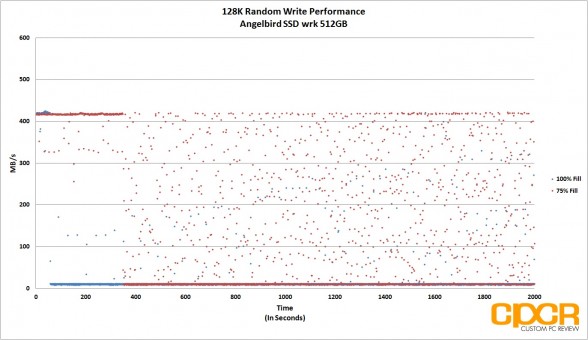
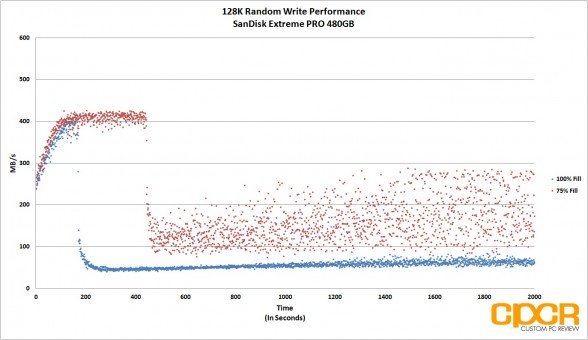
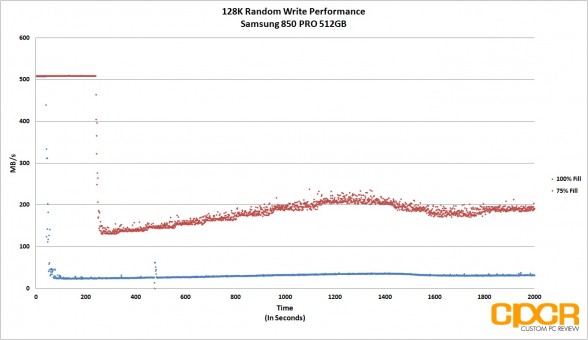
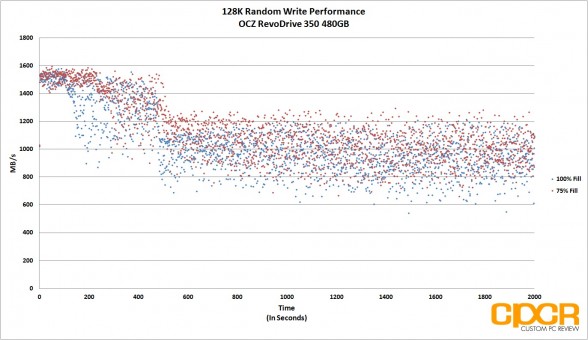
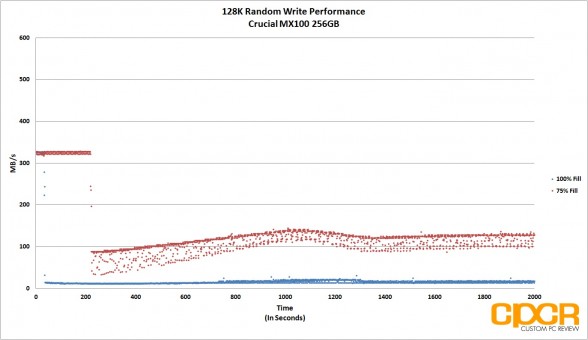
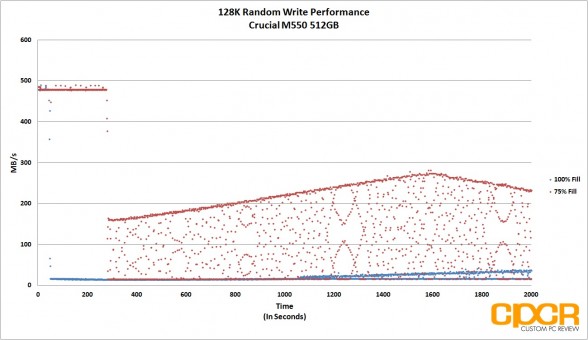
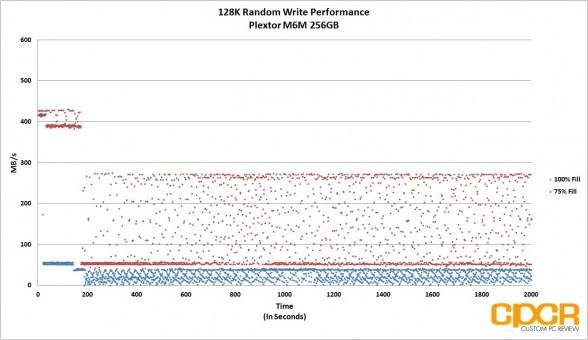
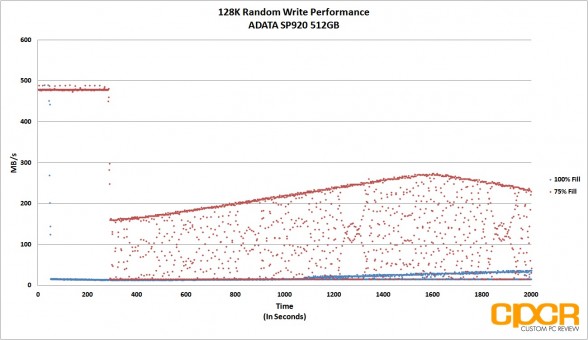
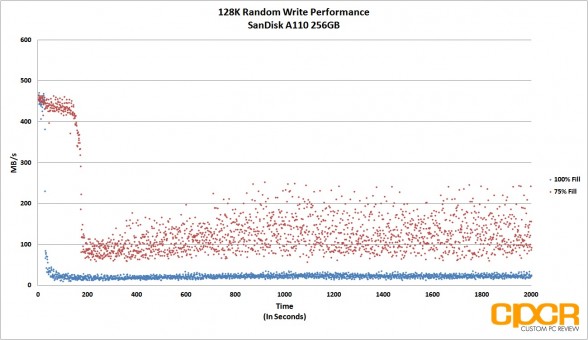
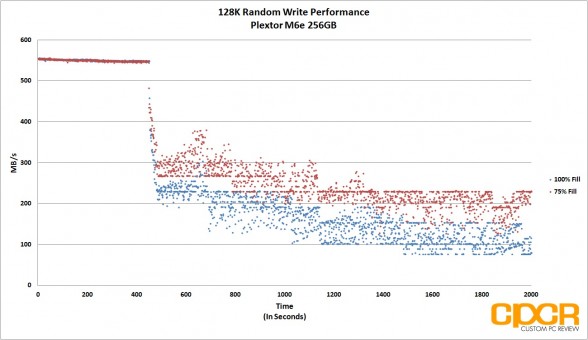
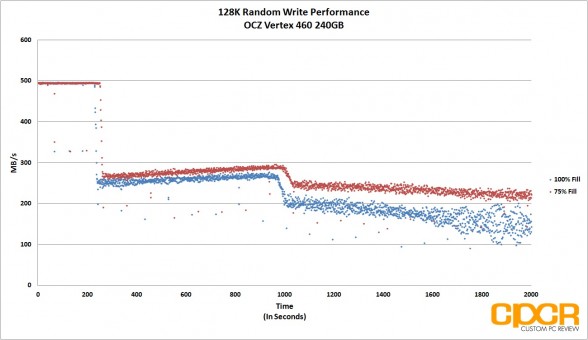
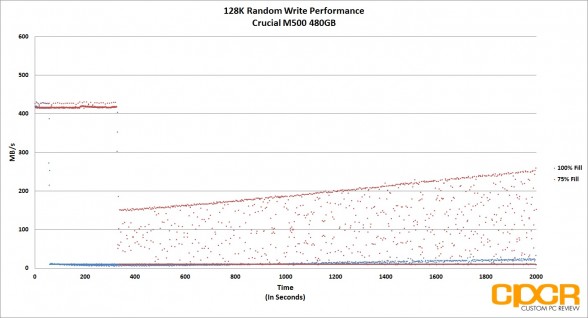
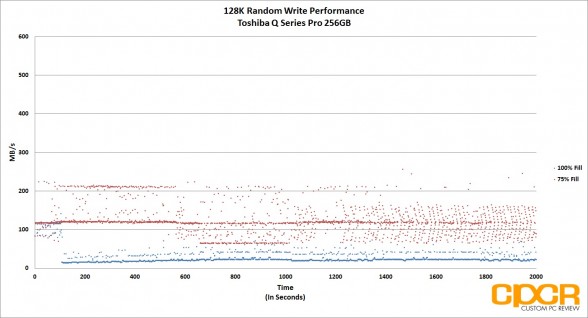
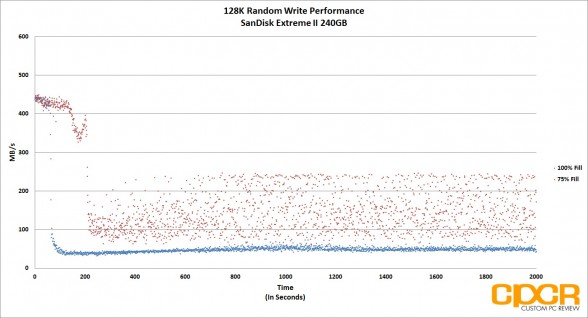
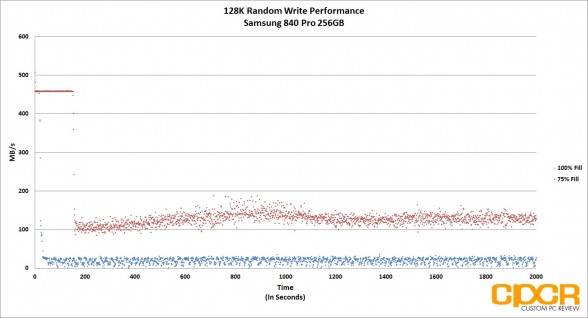
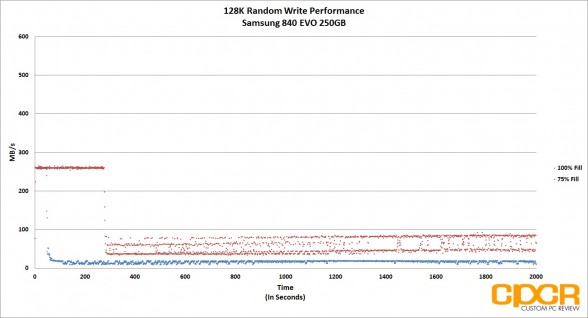
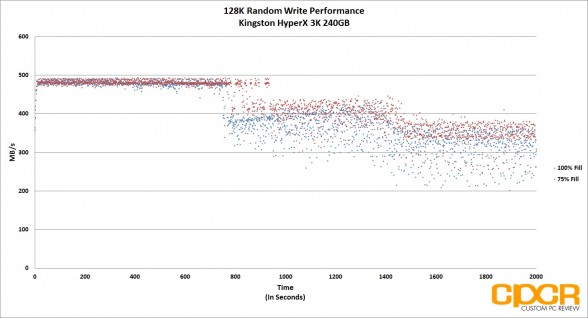
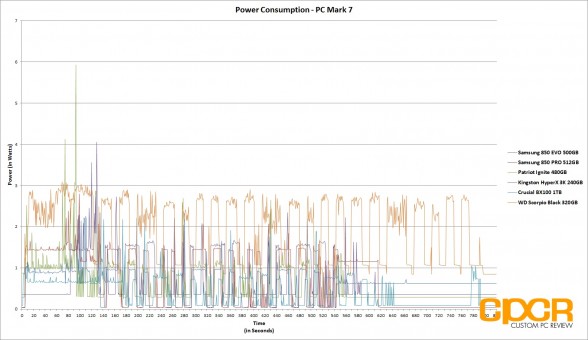
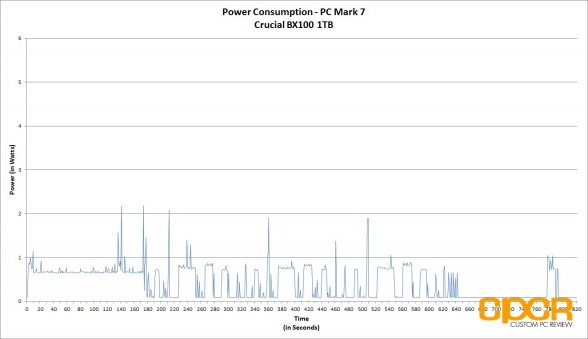
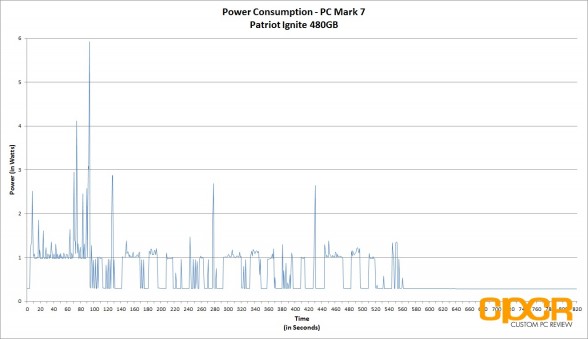
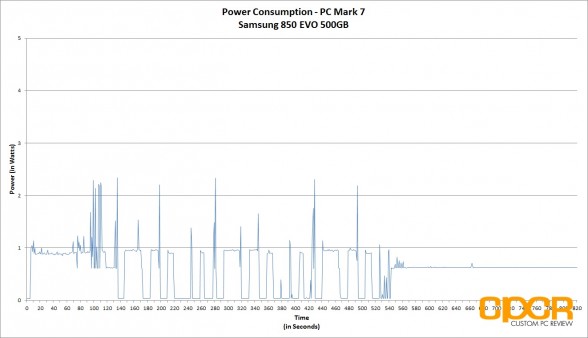
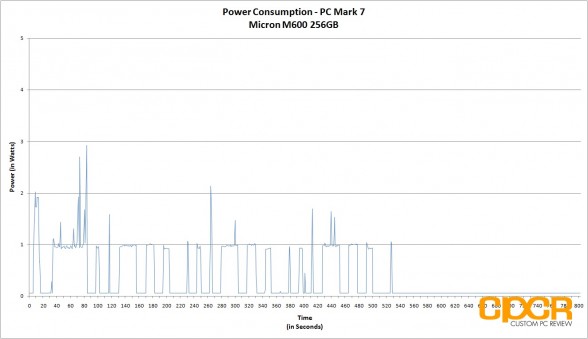
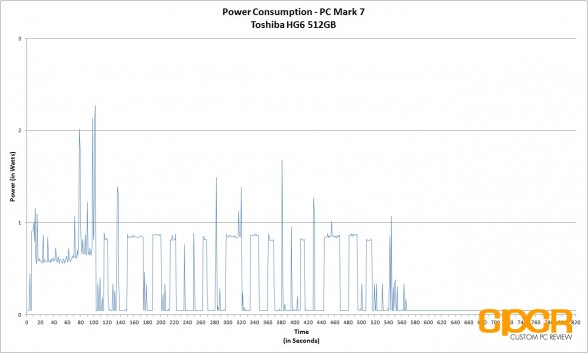
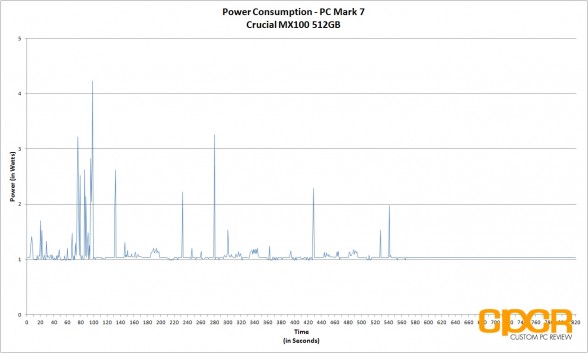
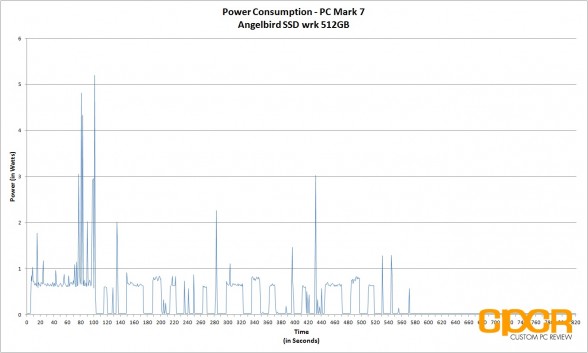
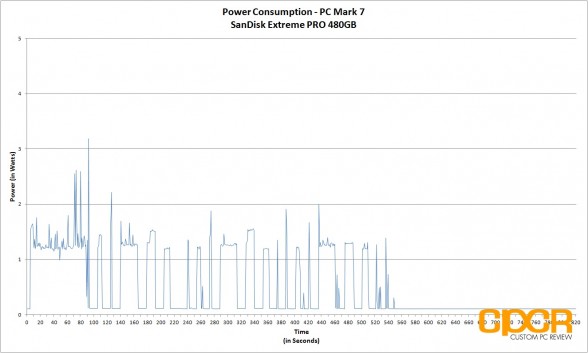
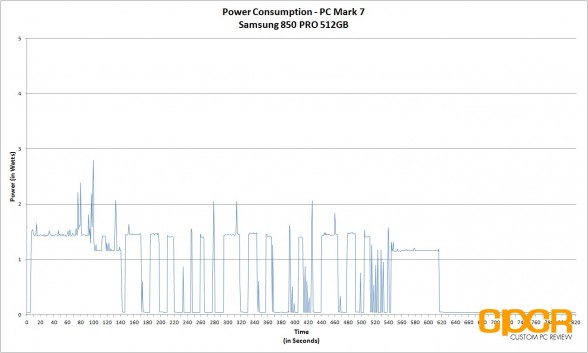
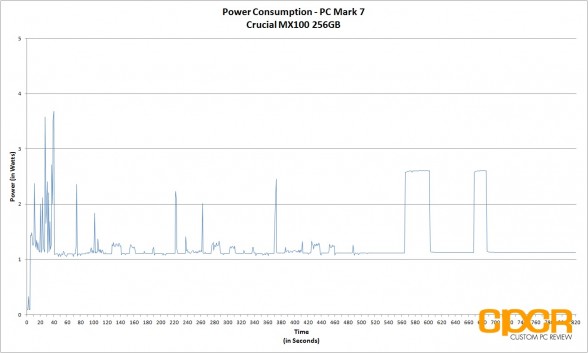
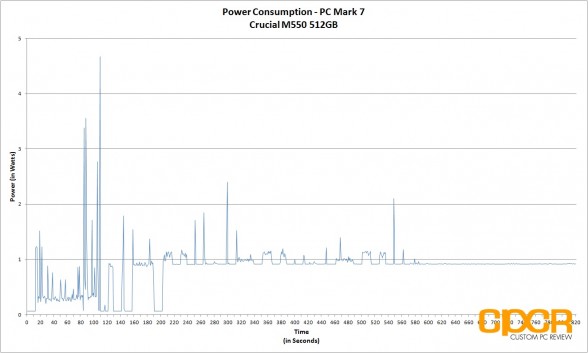
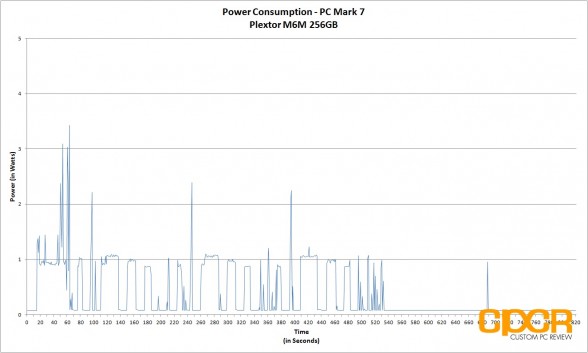
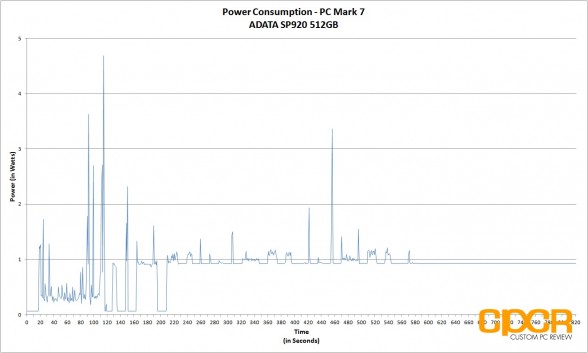
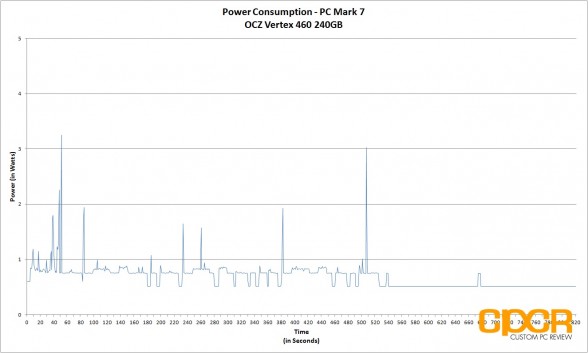
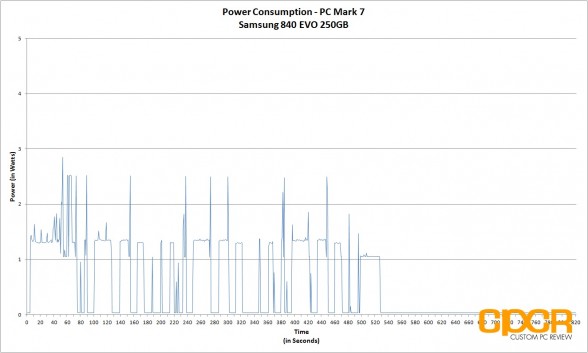
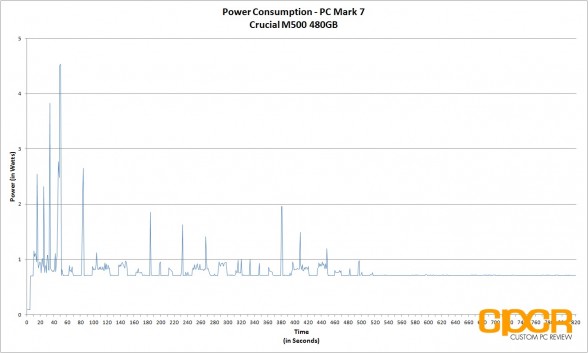
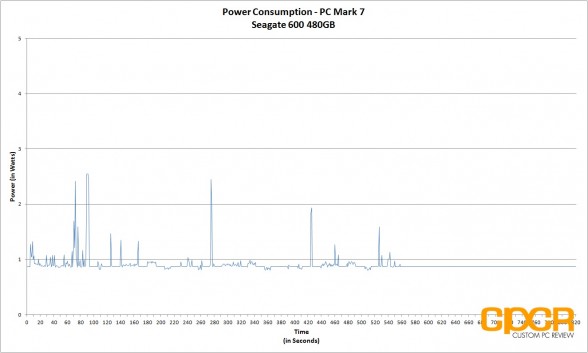
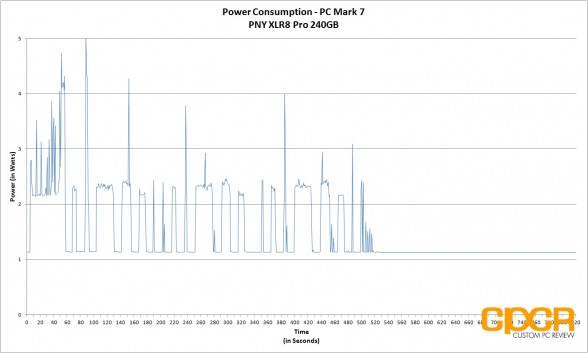
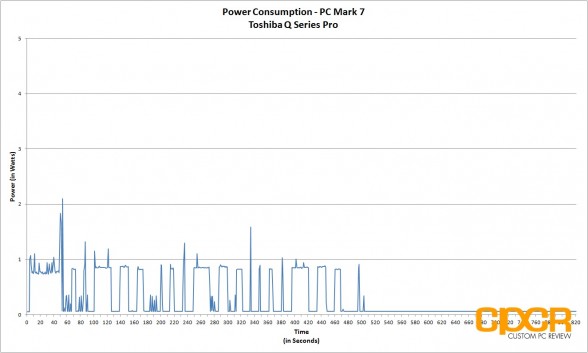
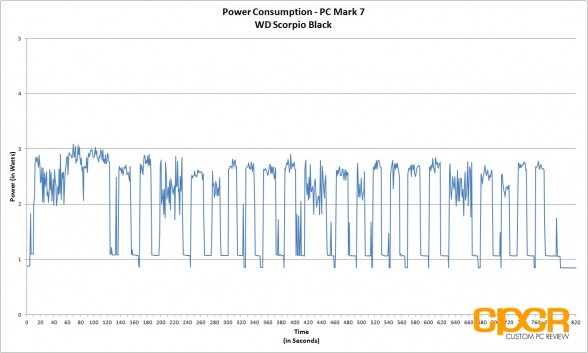
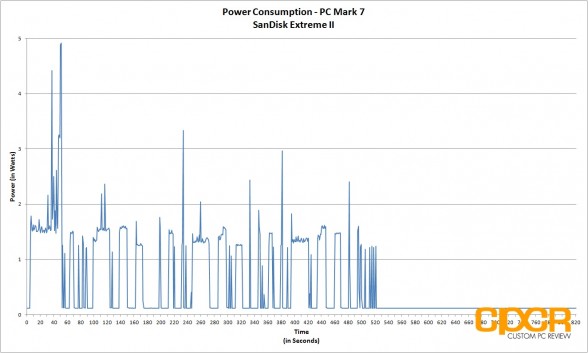
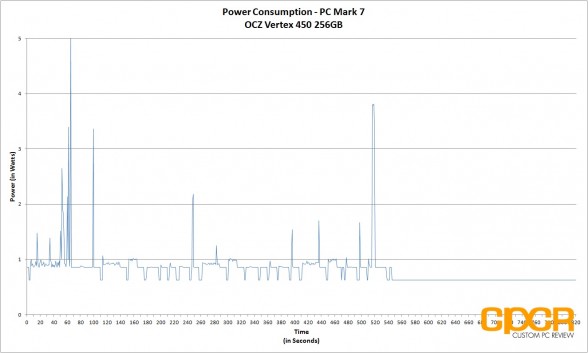
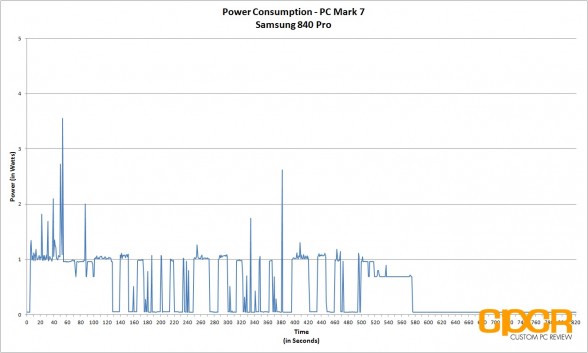
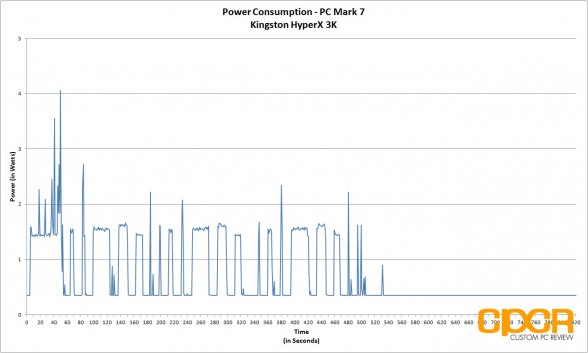
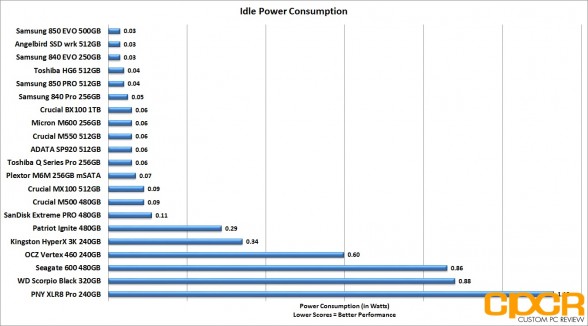
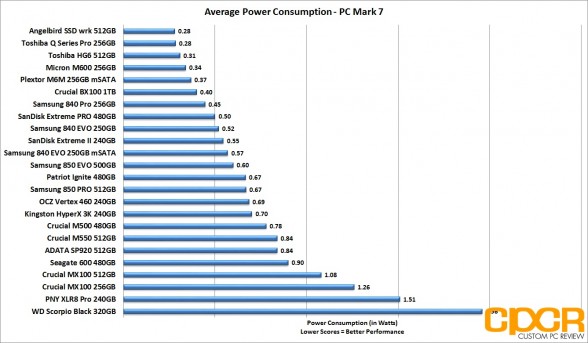

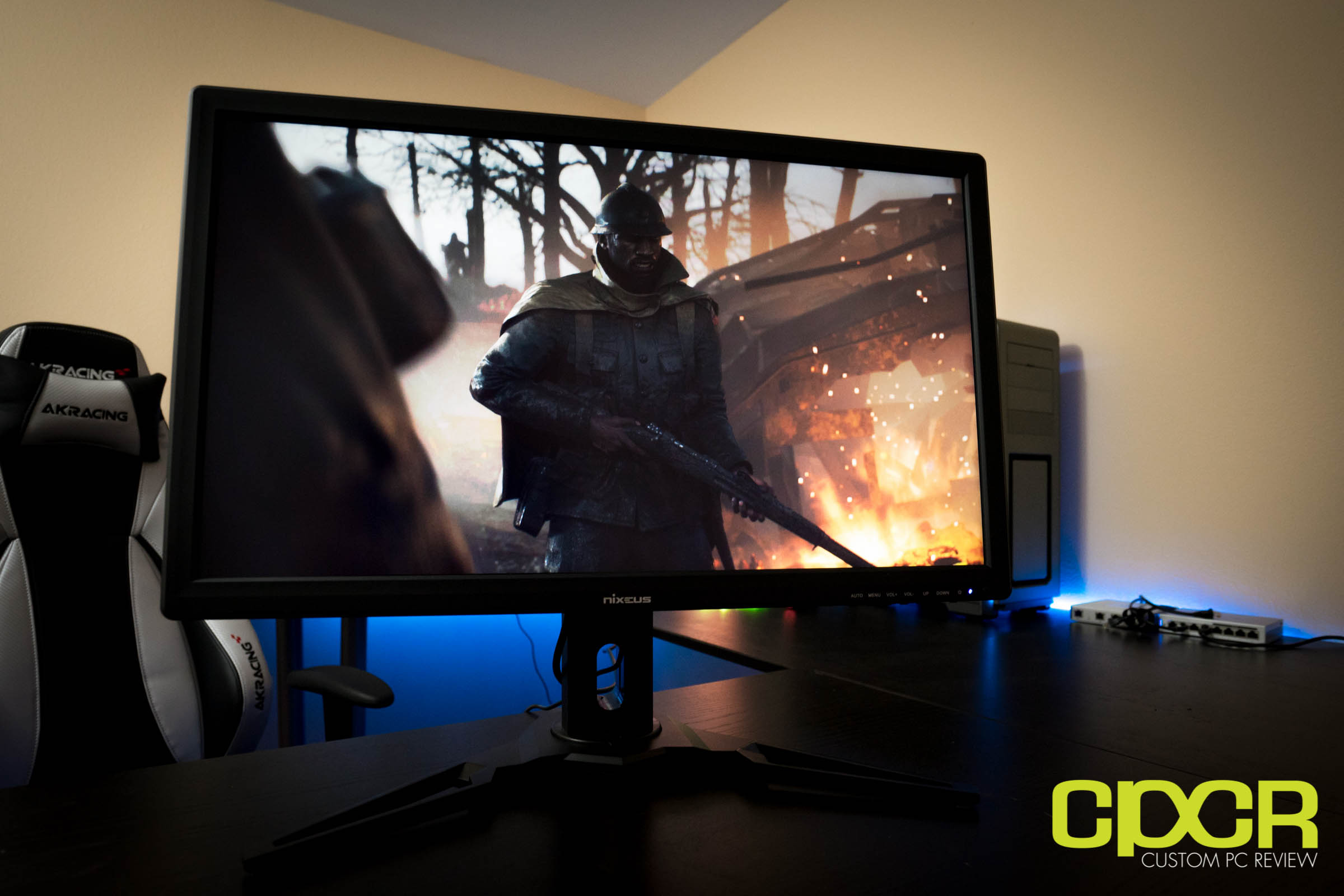

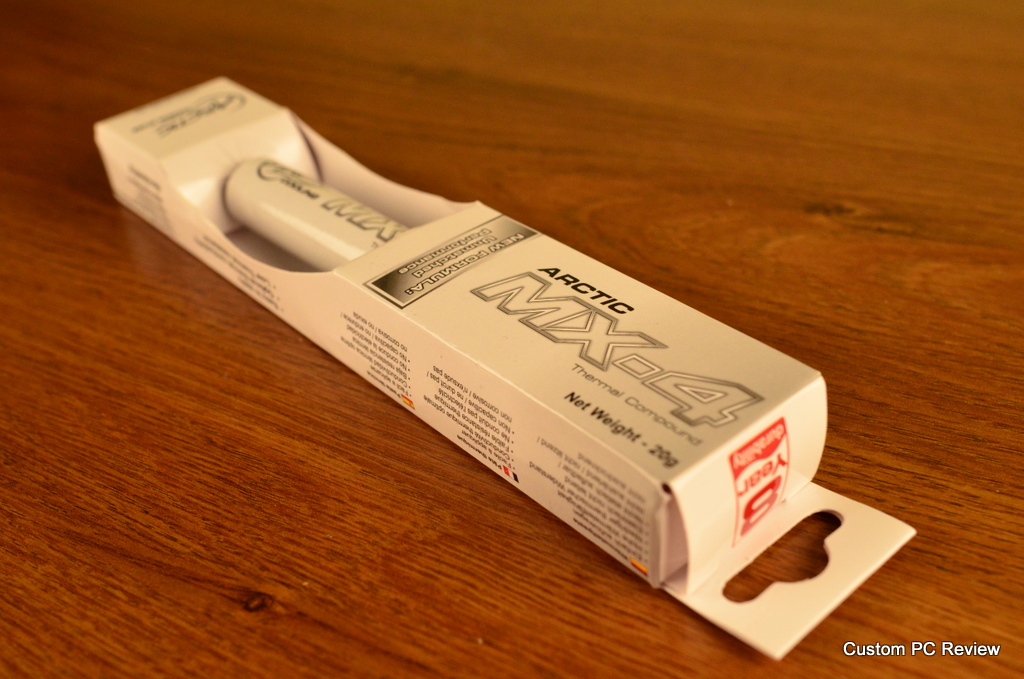
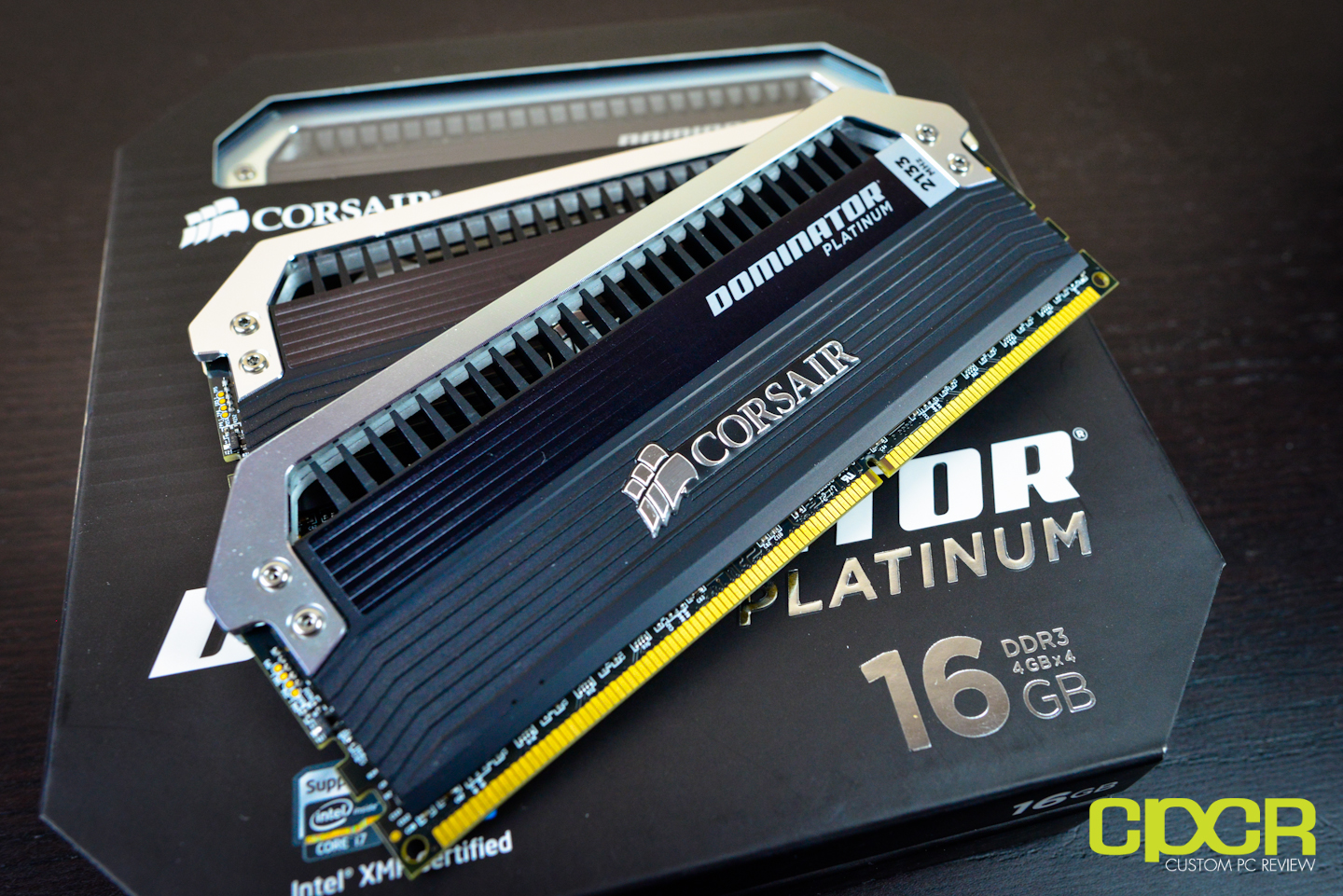
There is no excuse not to buy an SSD now. They last longer than hard disks and perform far far faster and finally the cost is below .40 cents per GB.